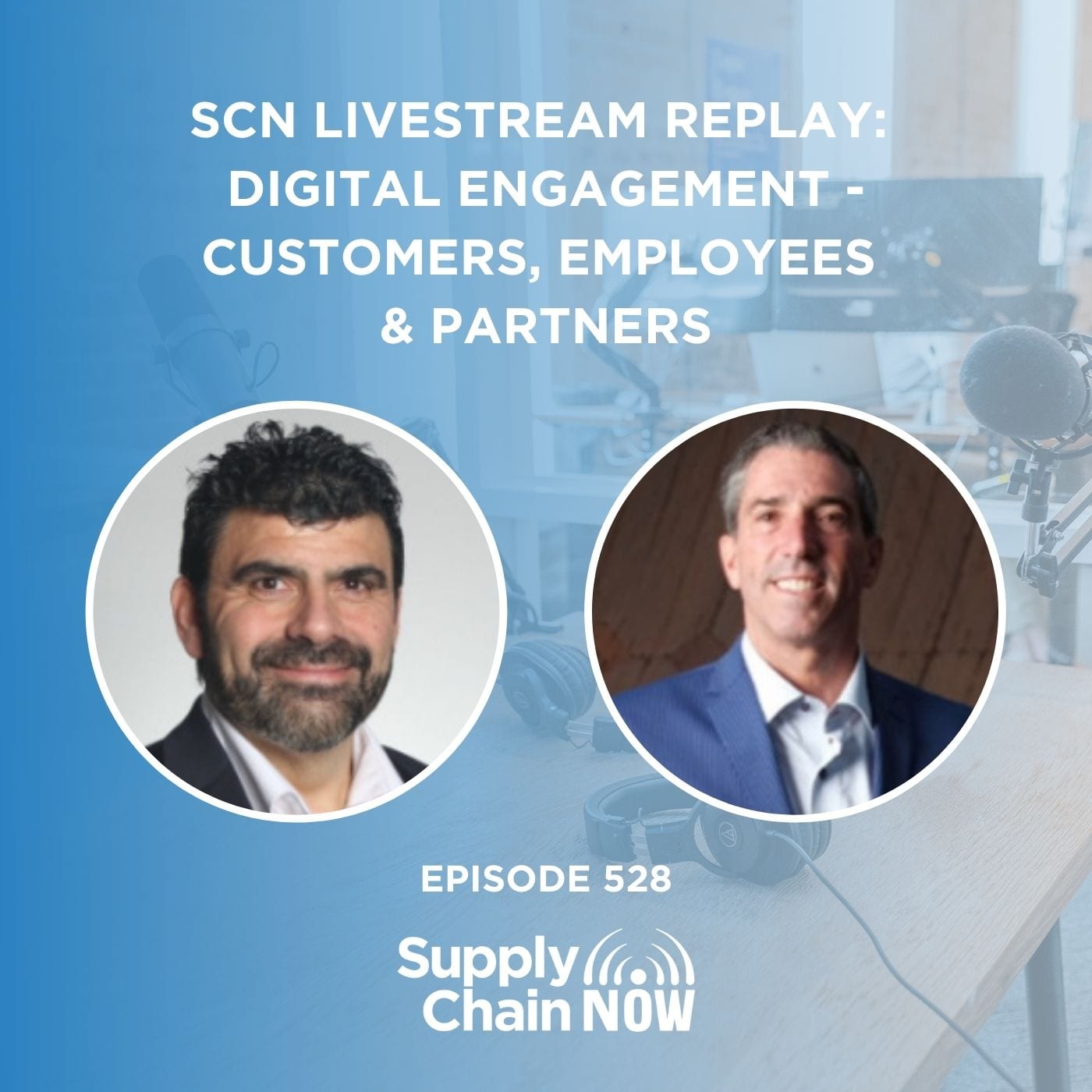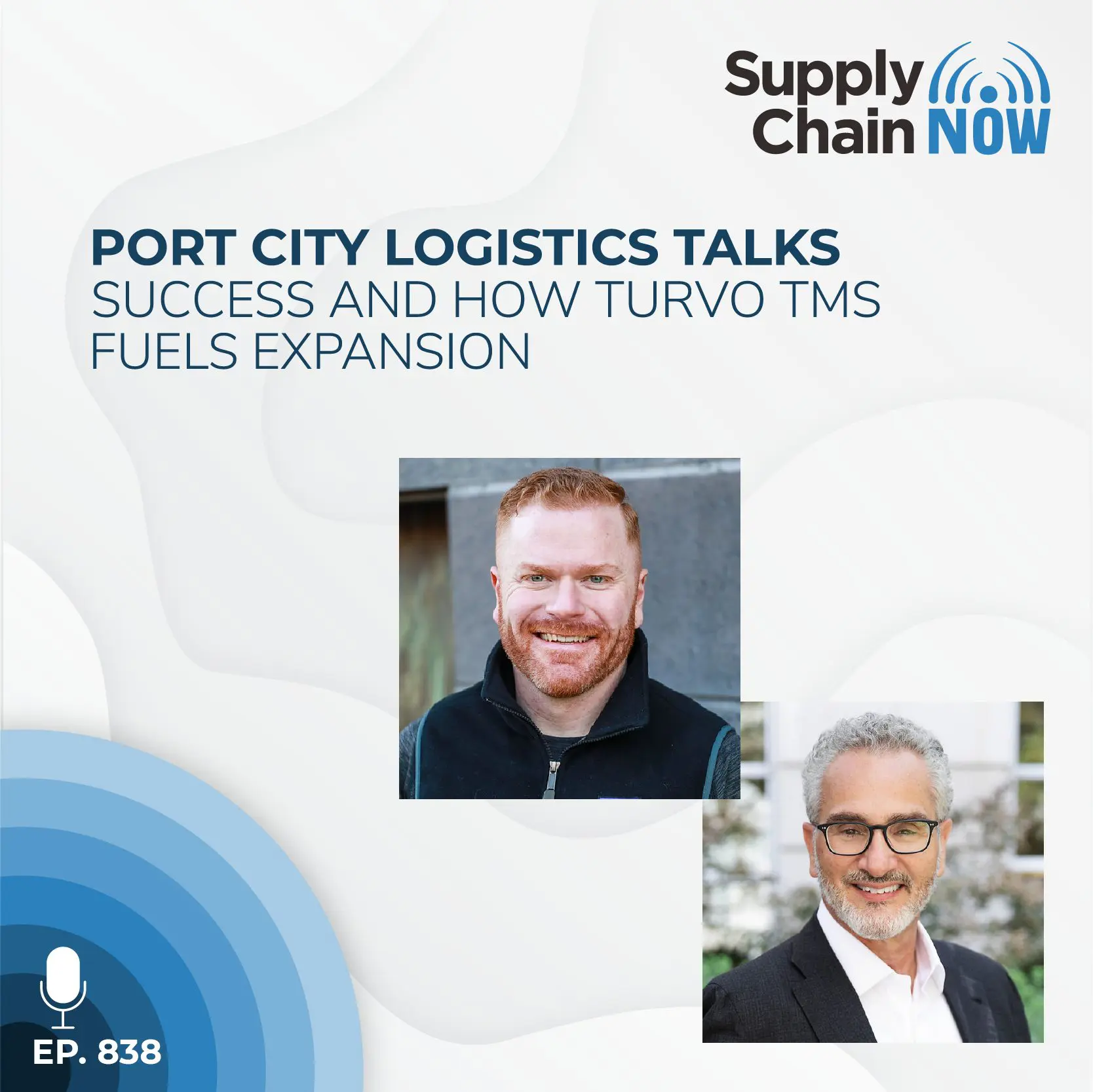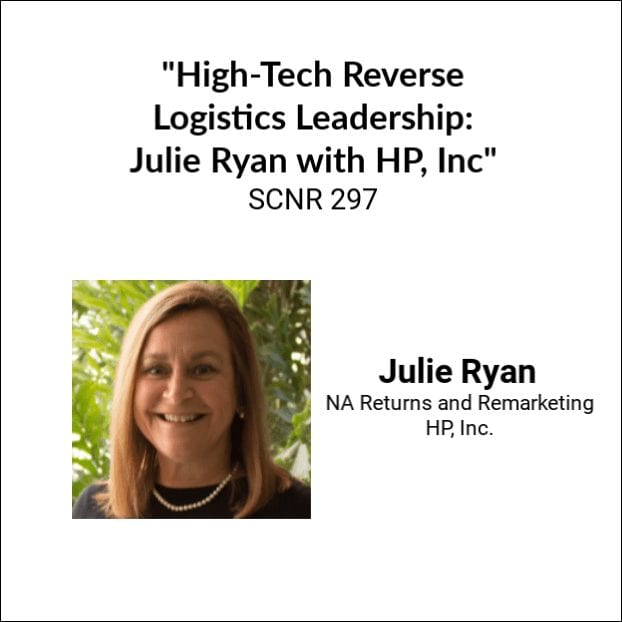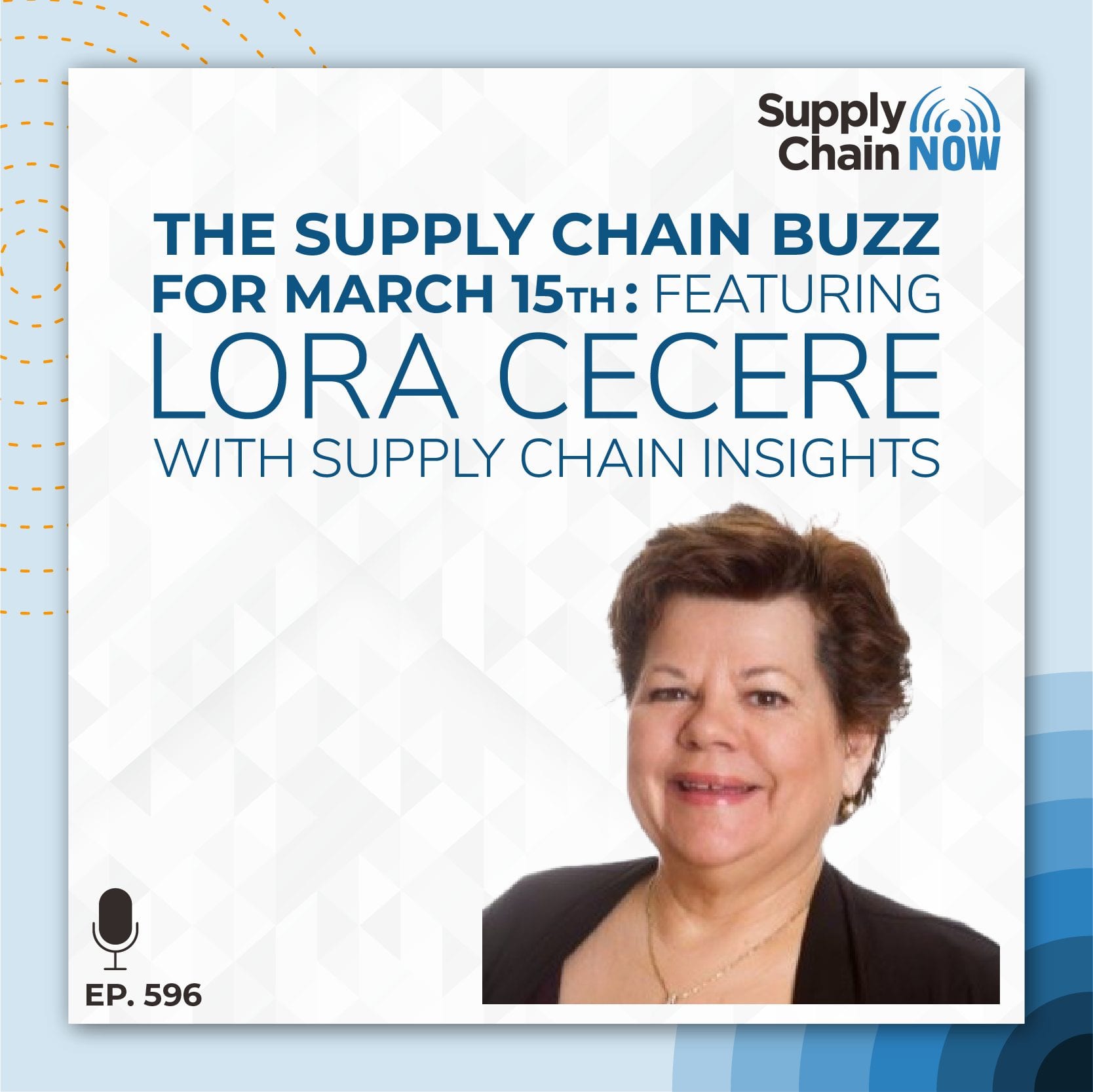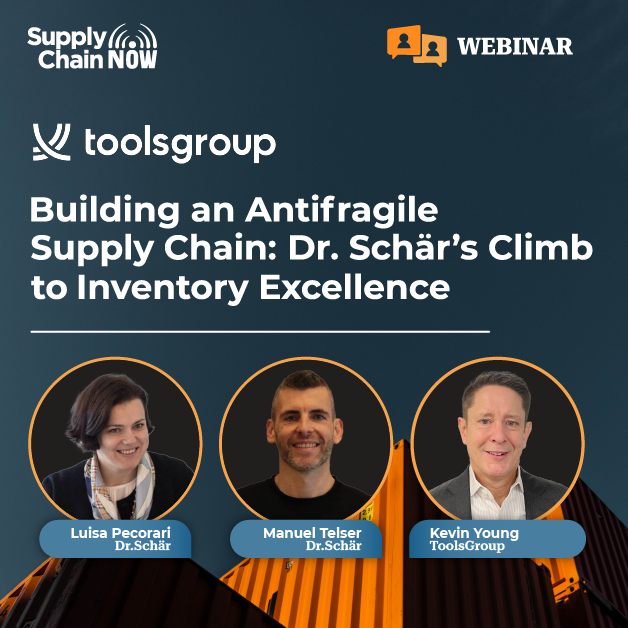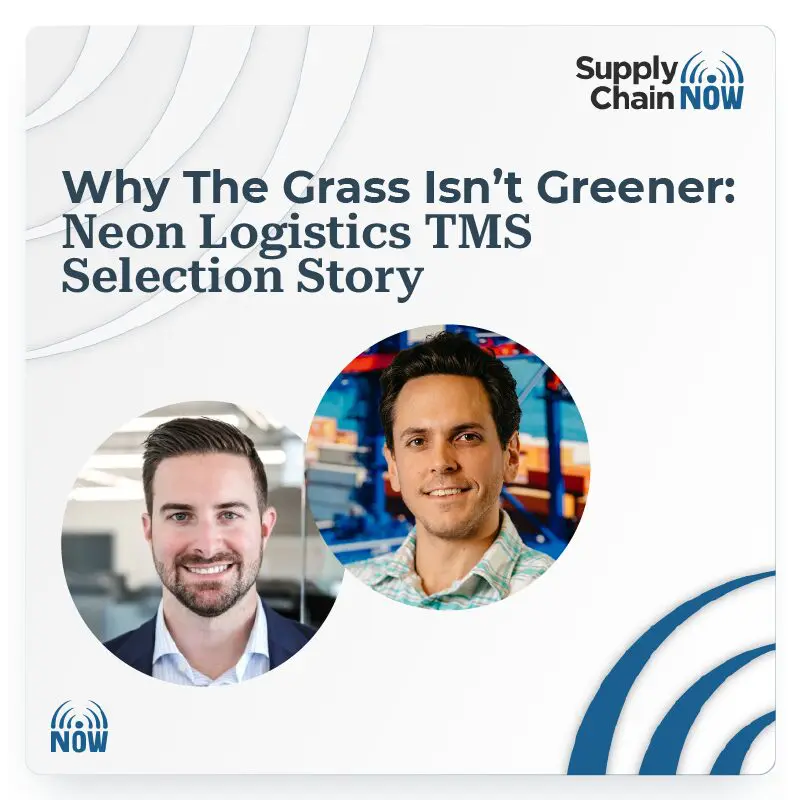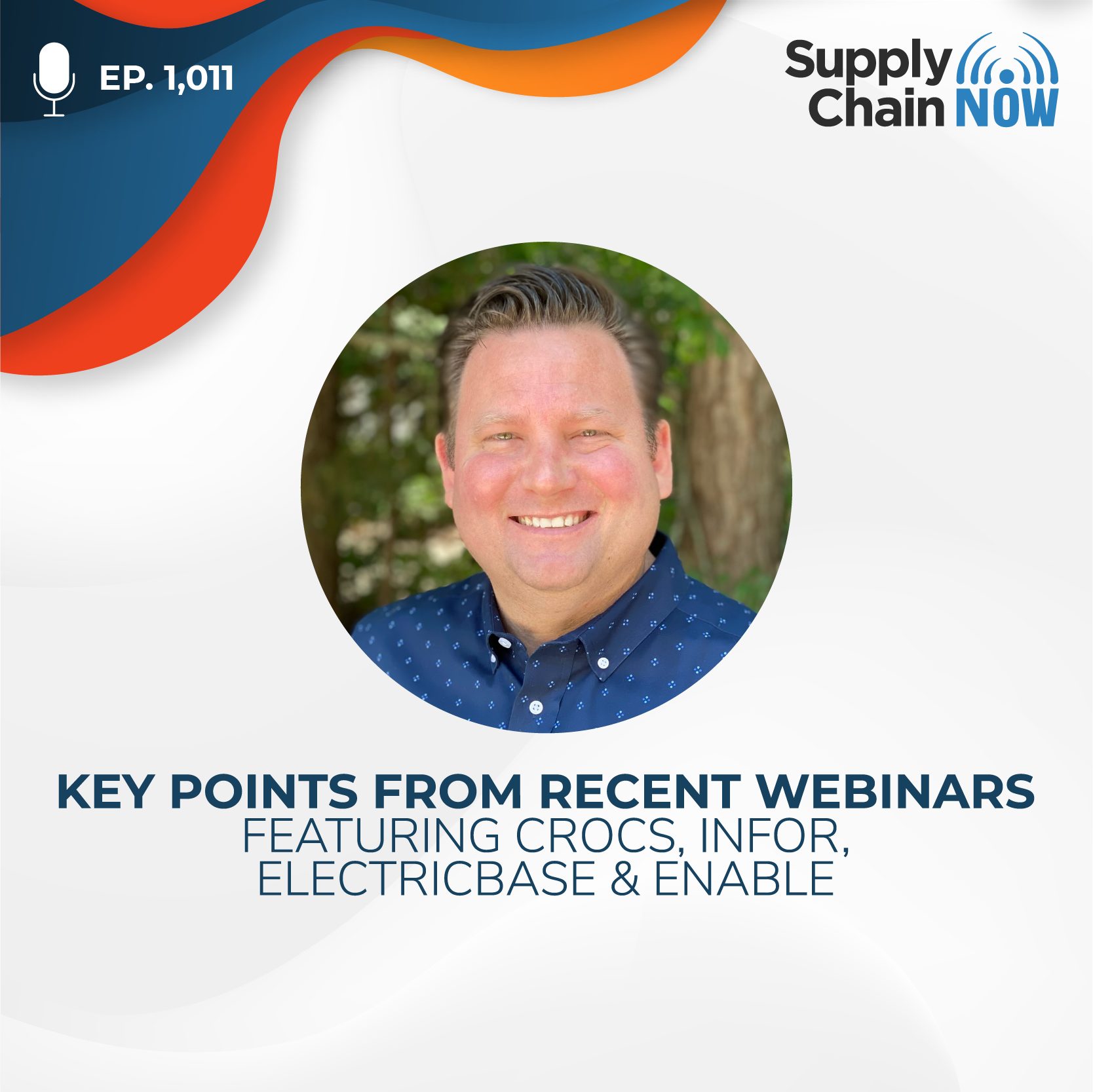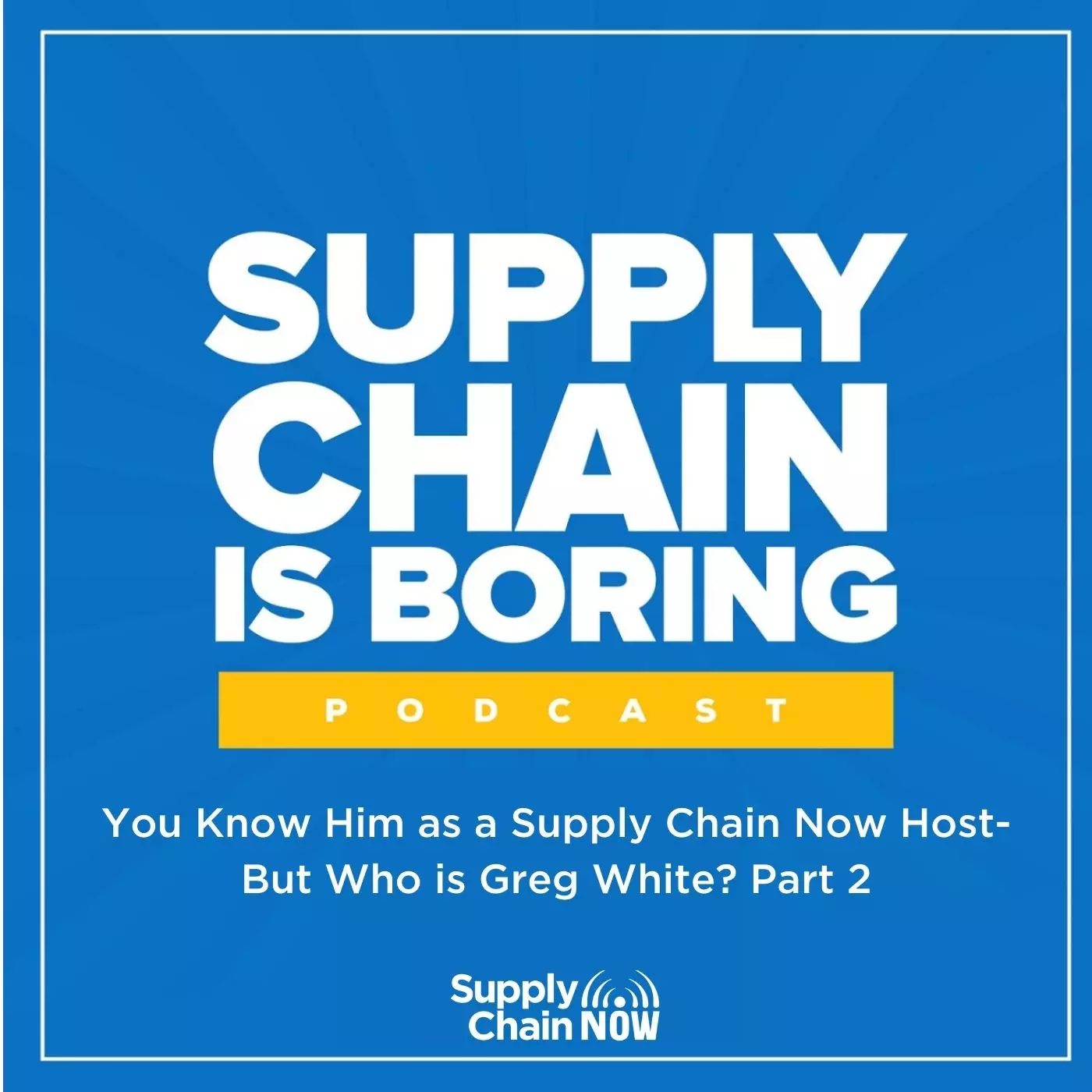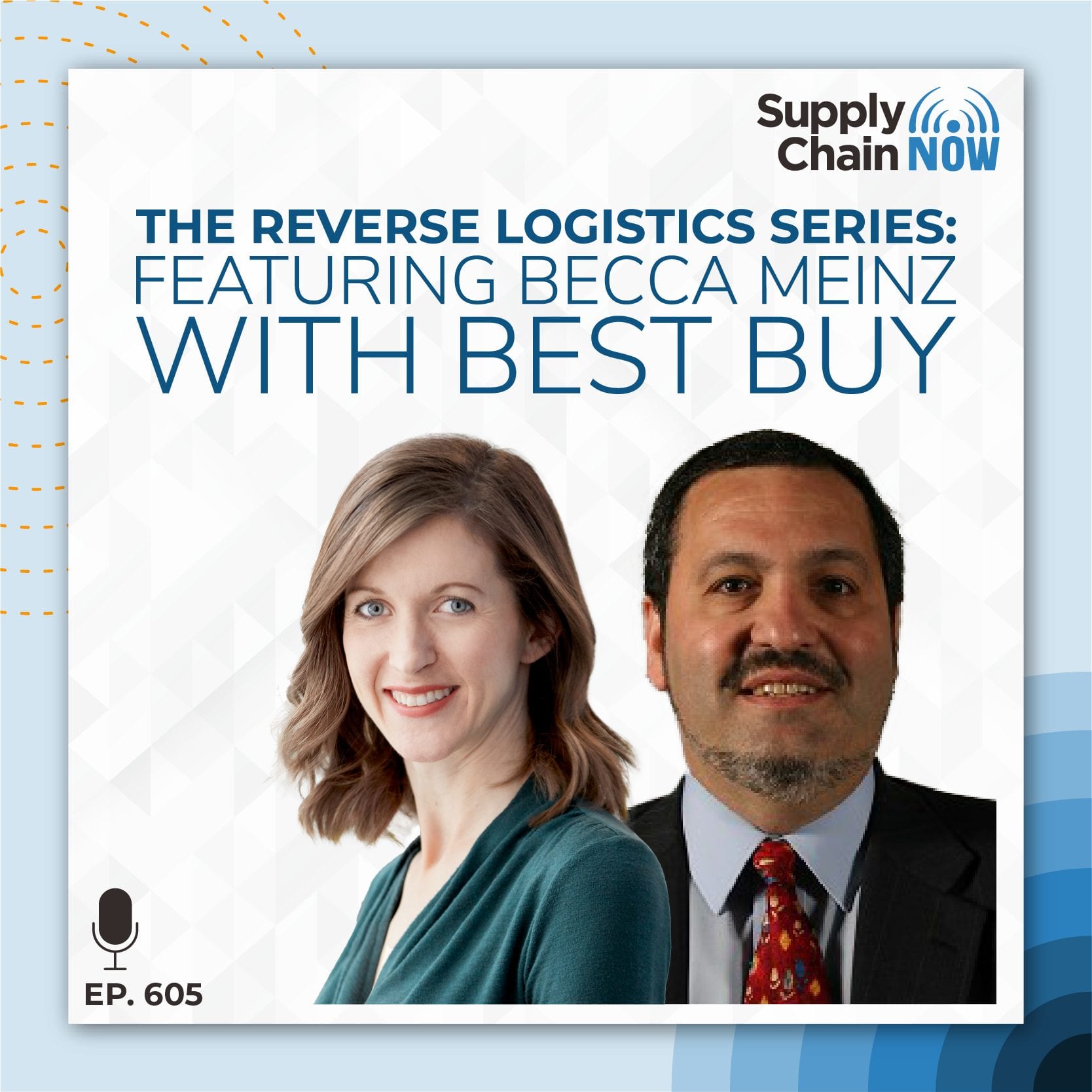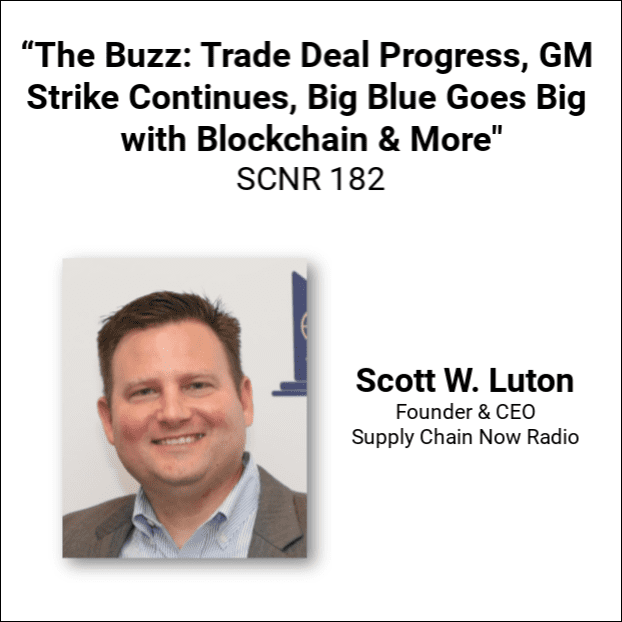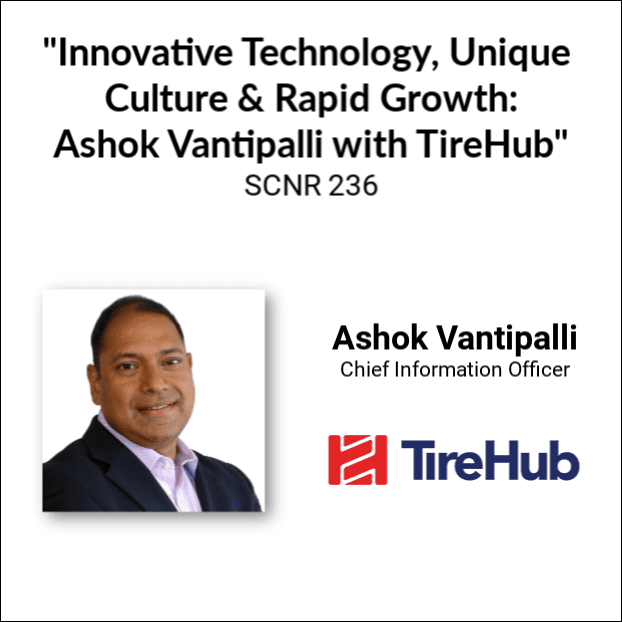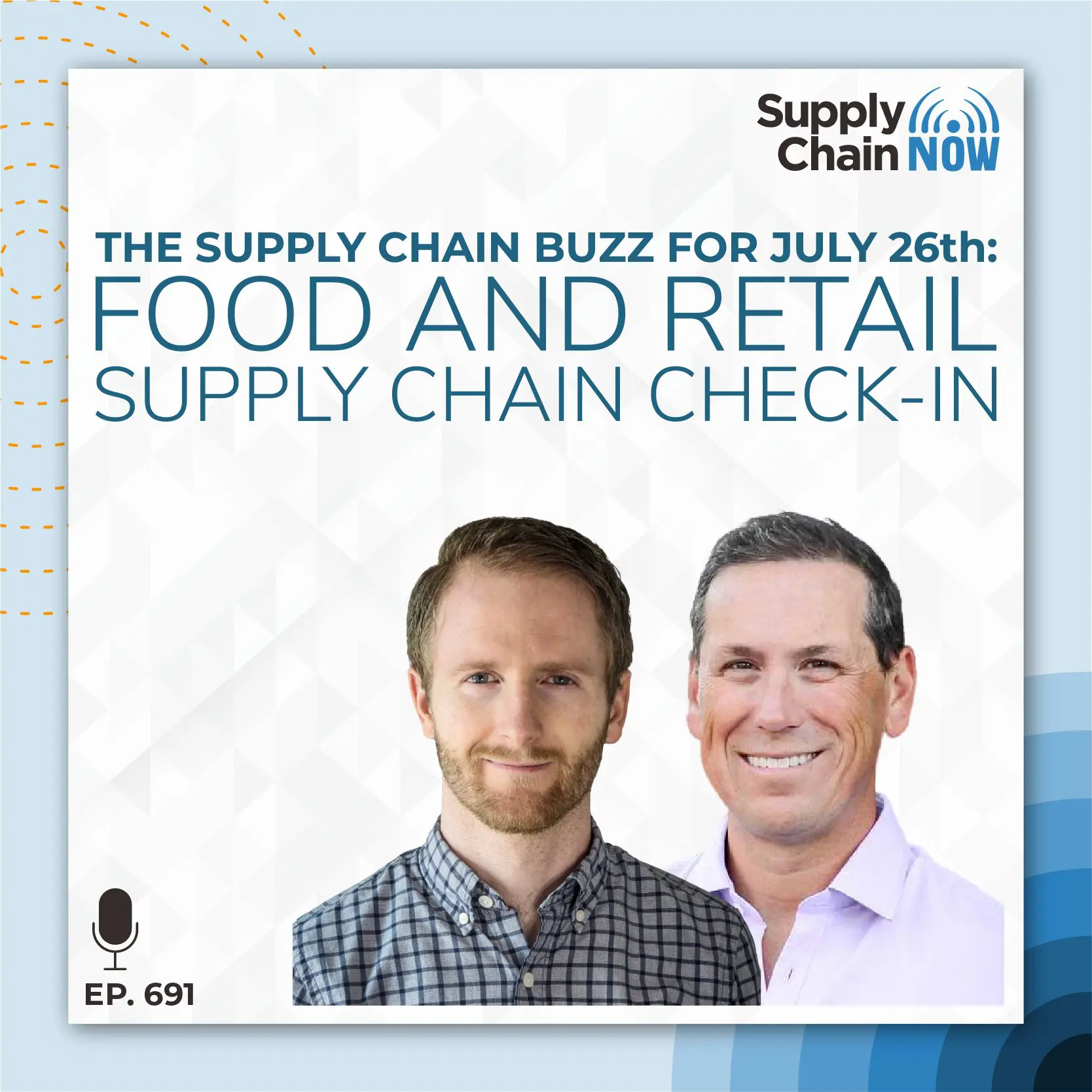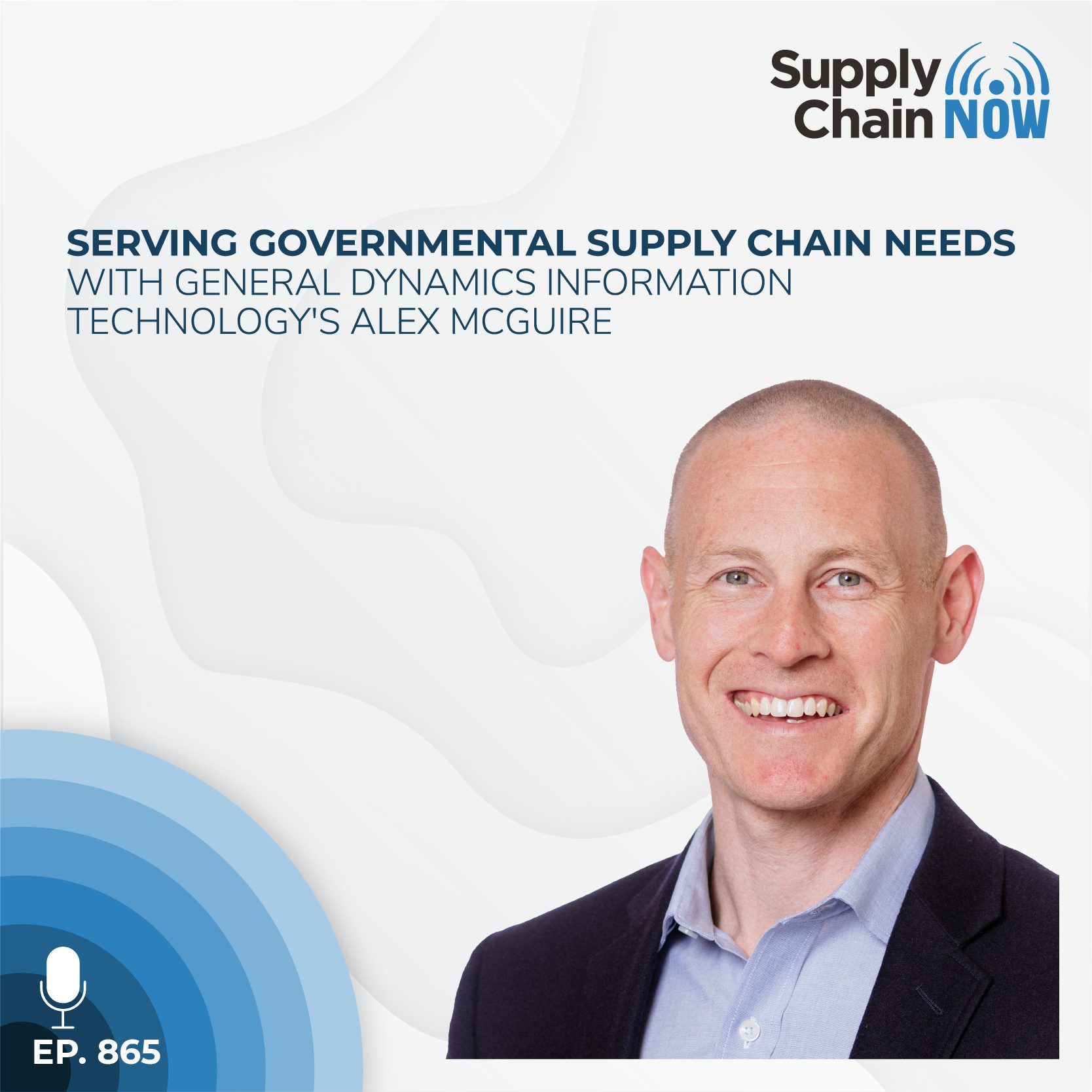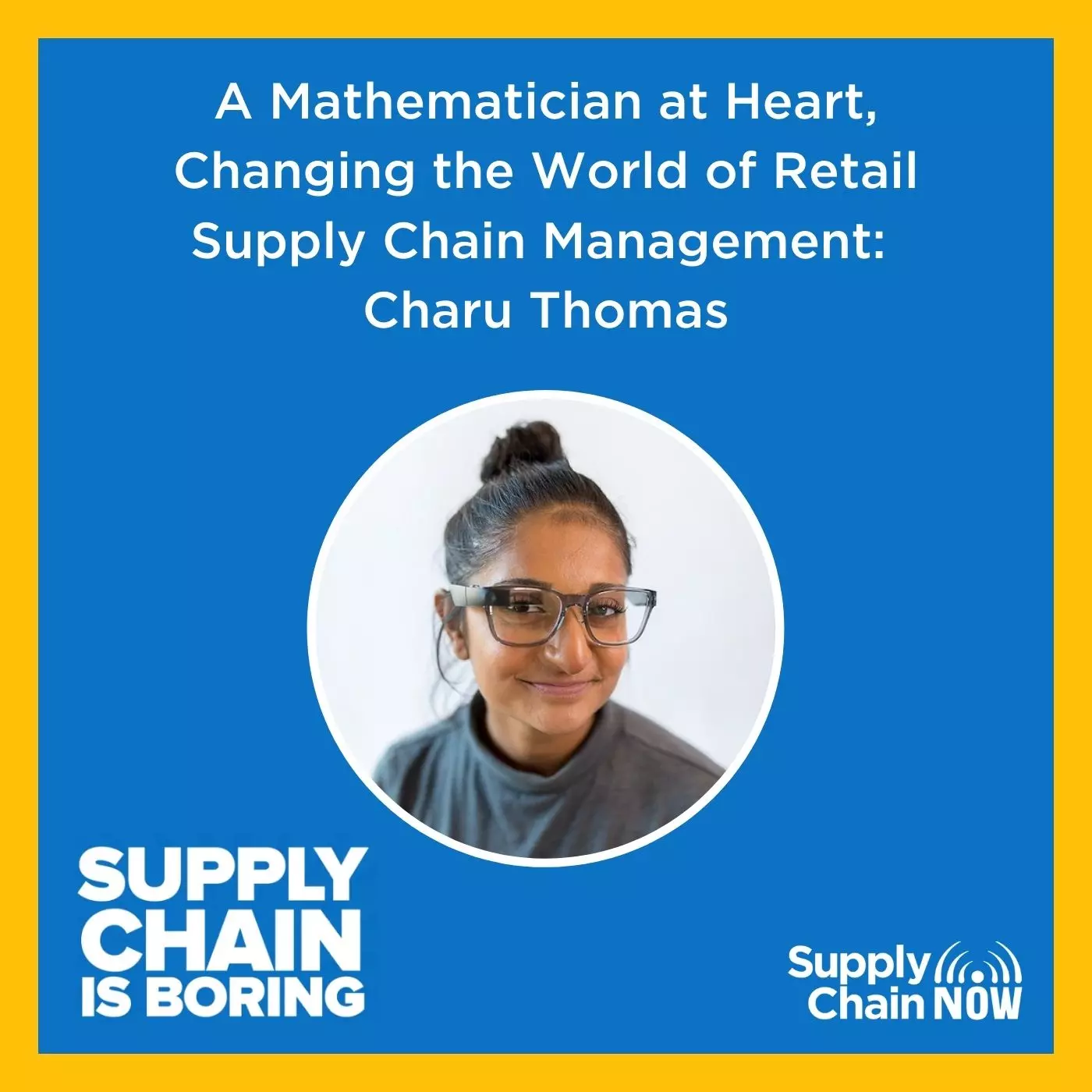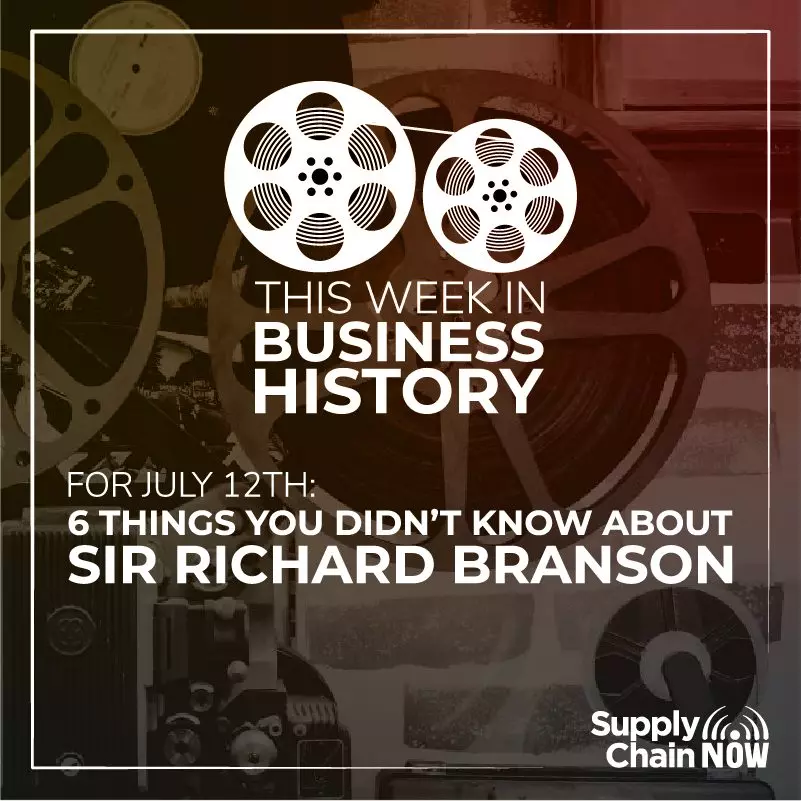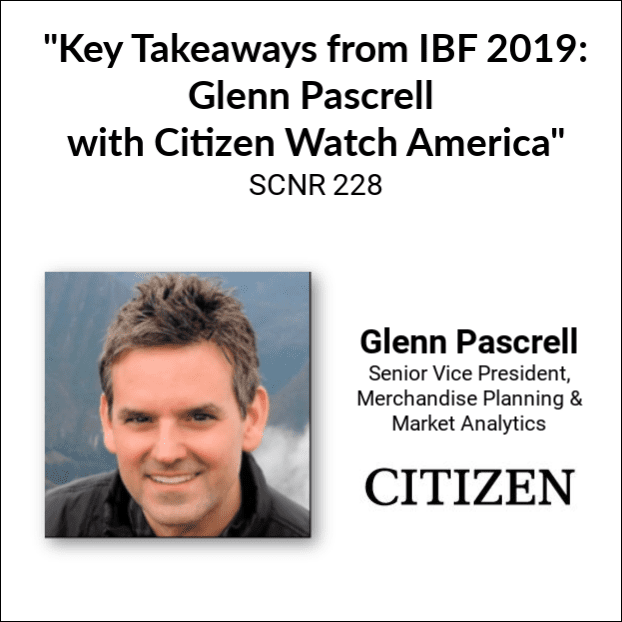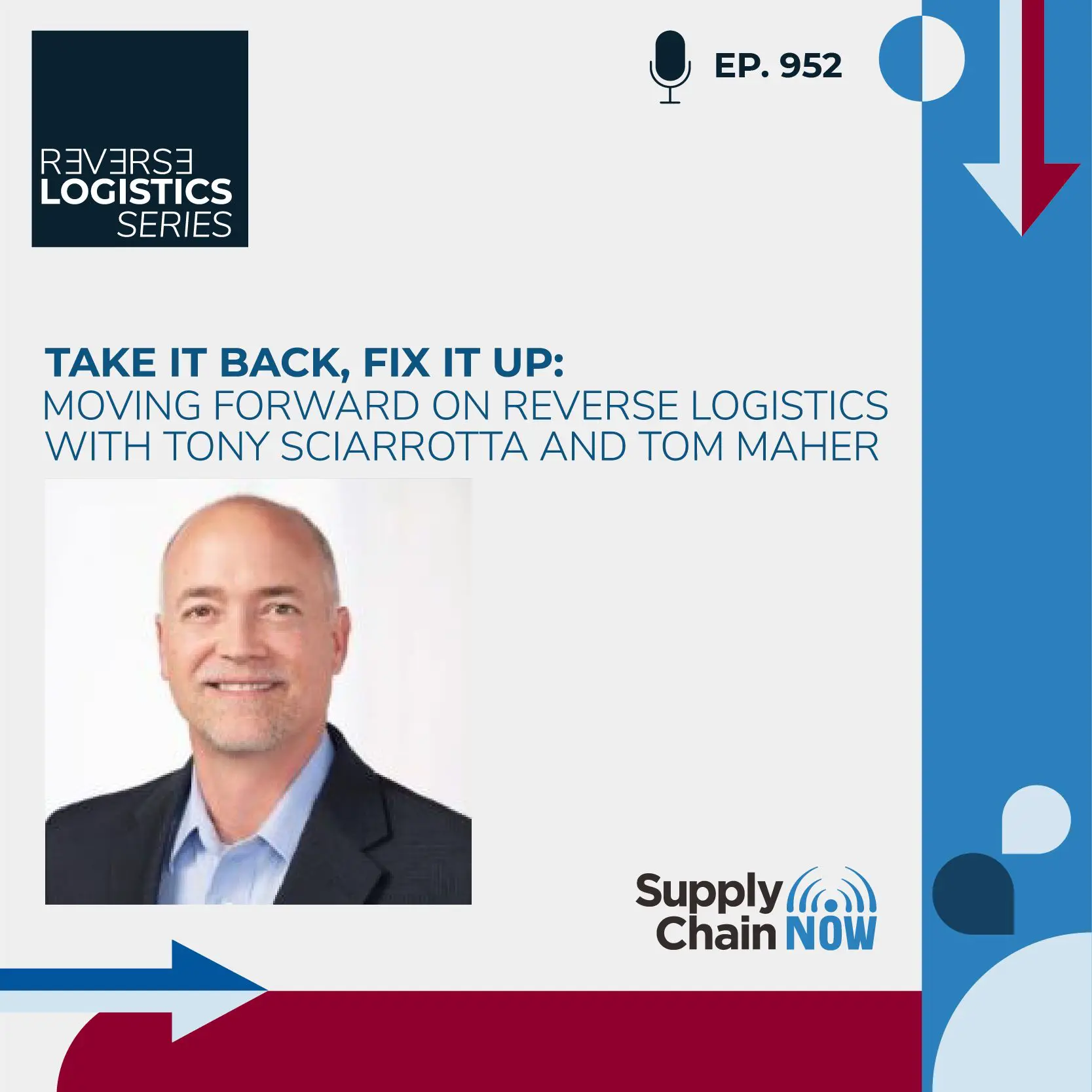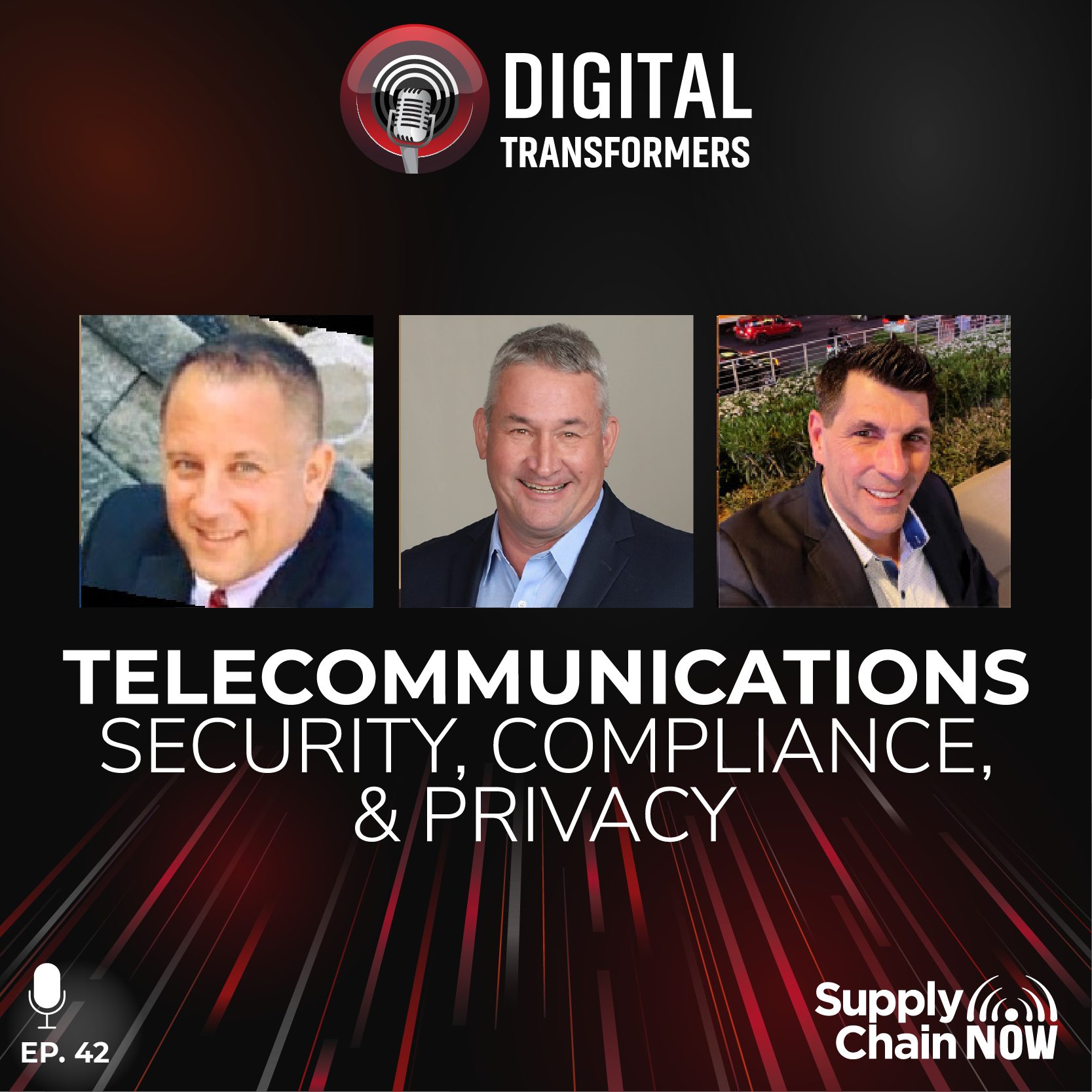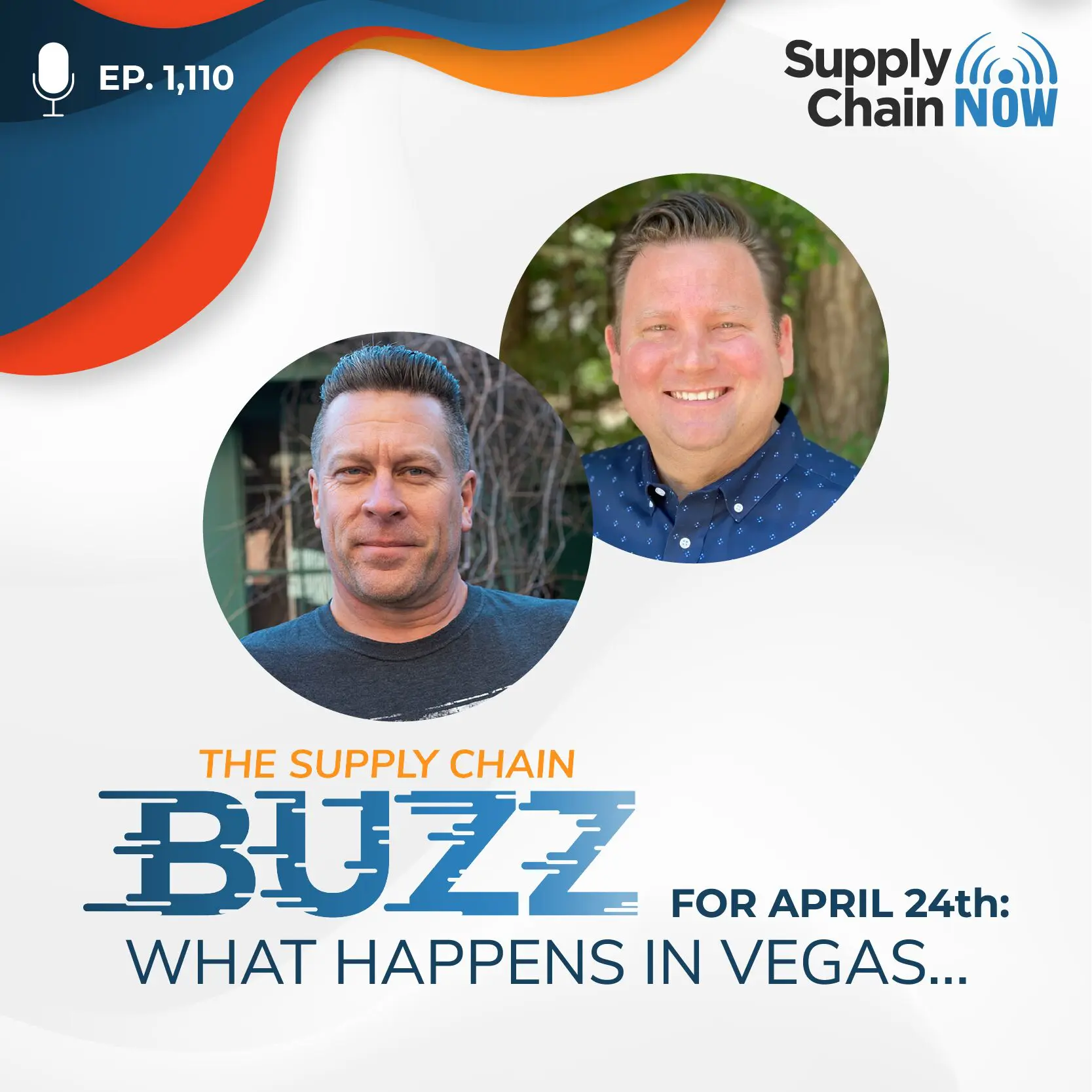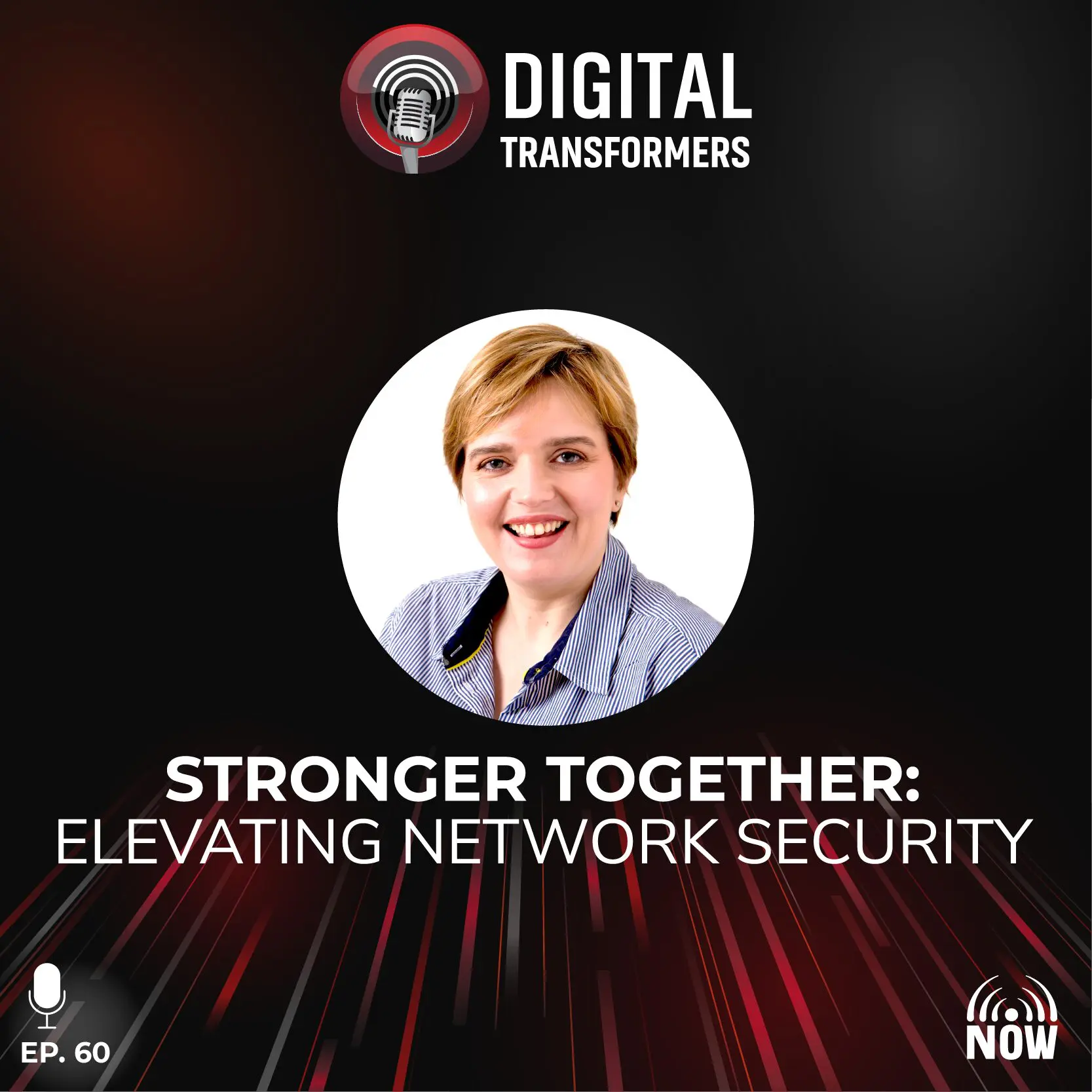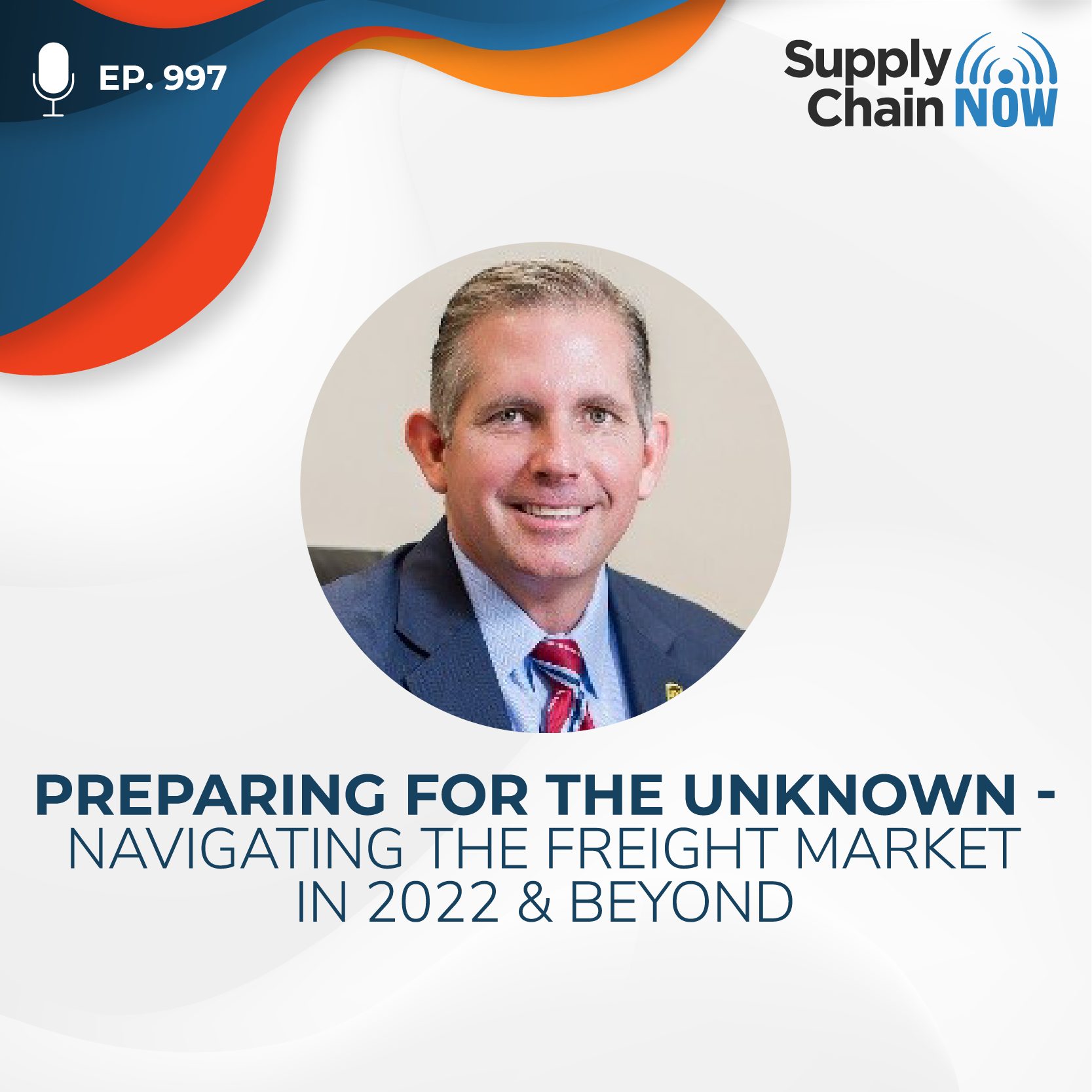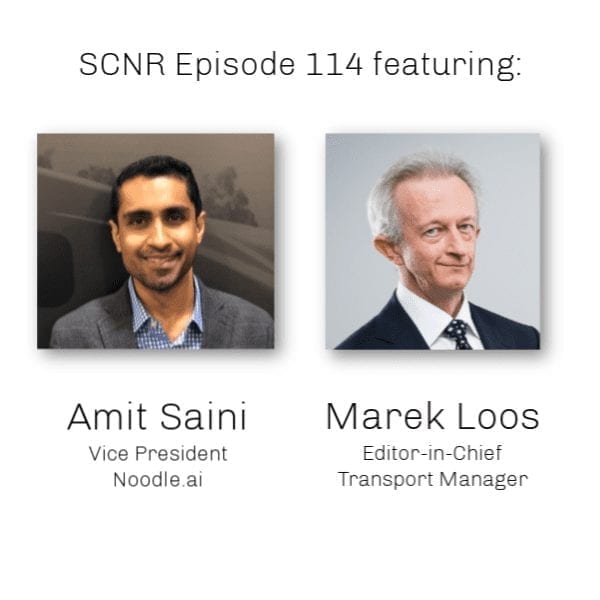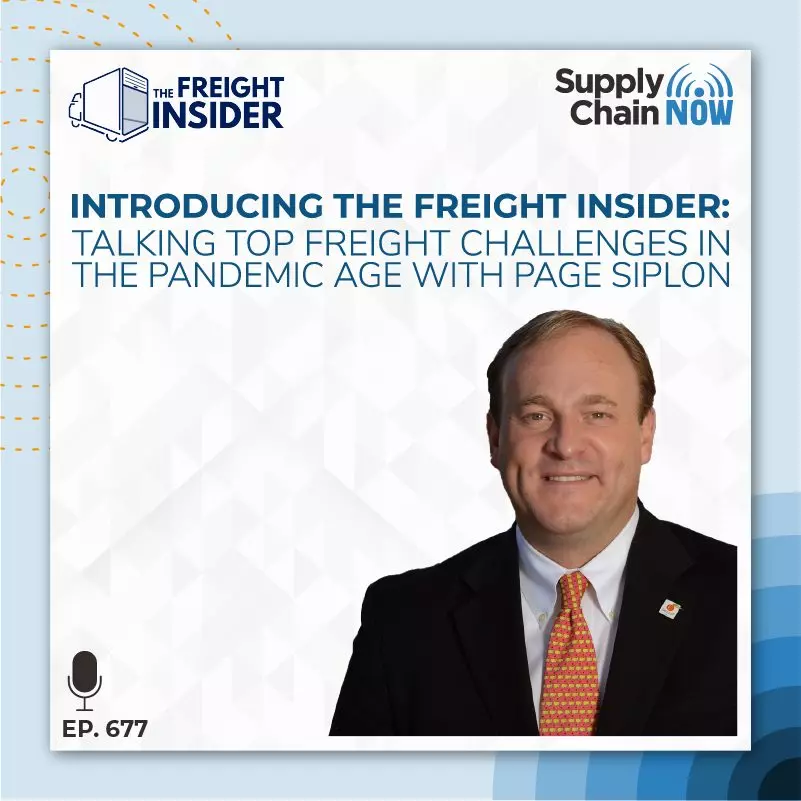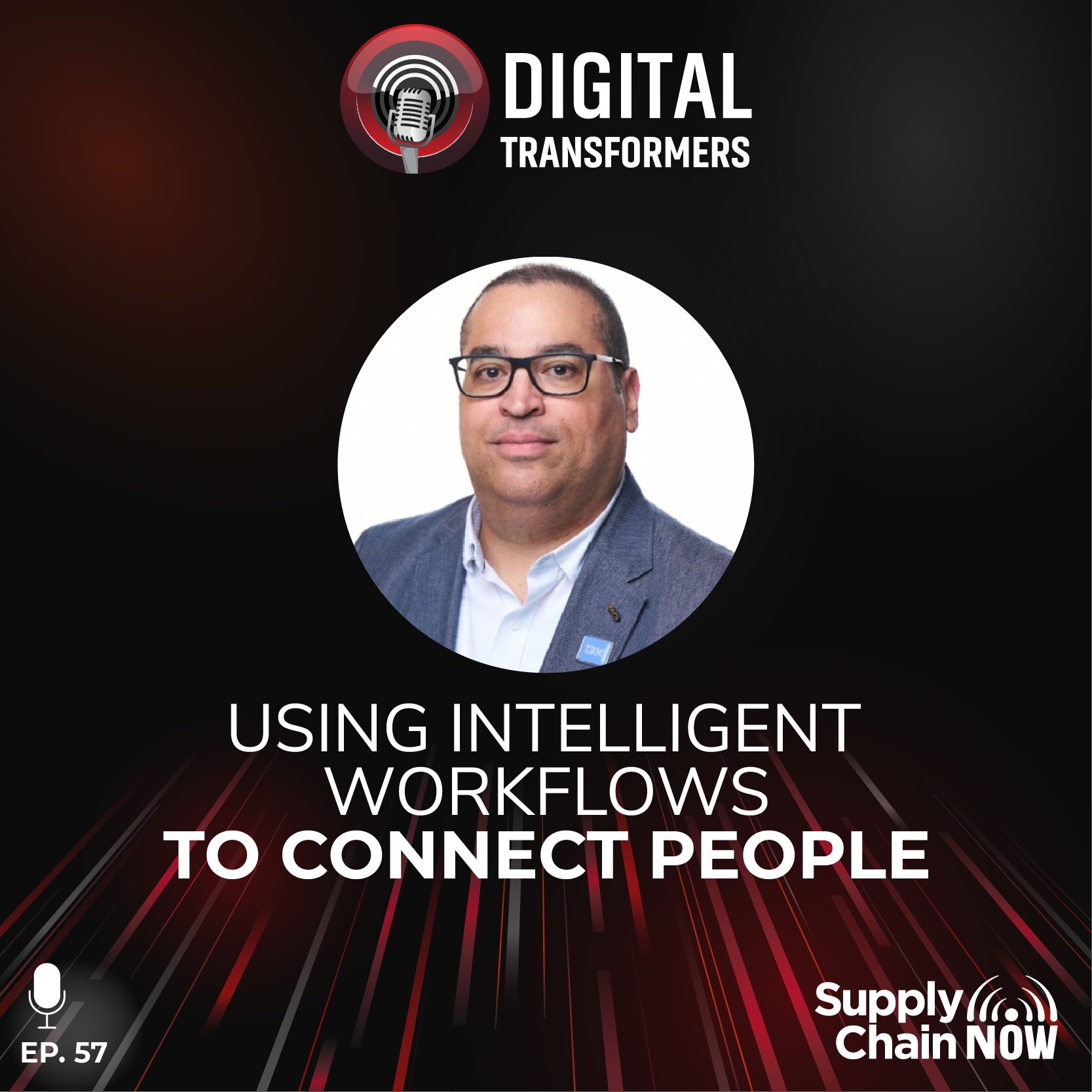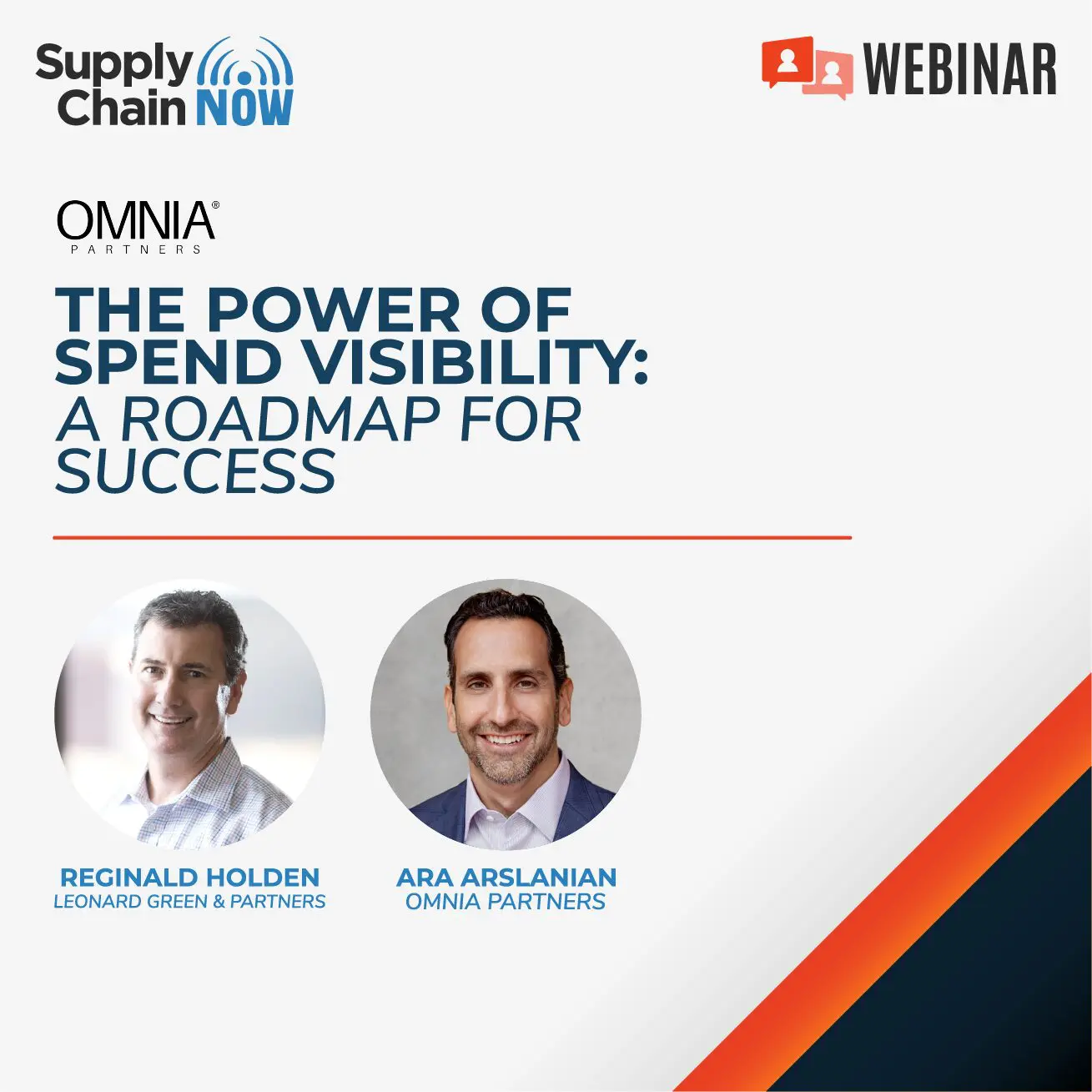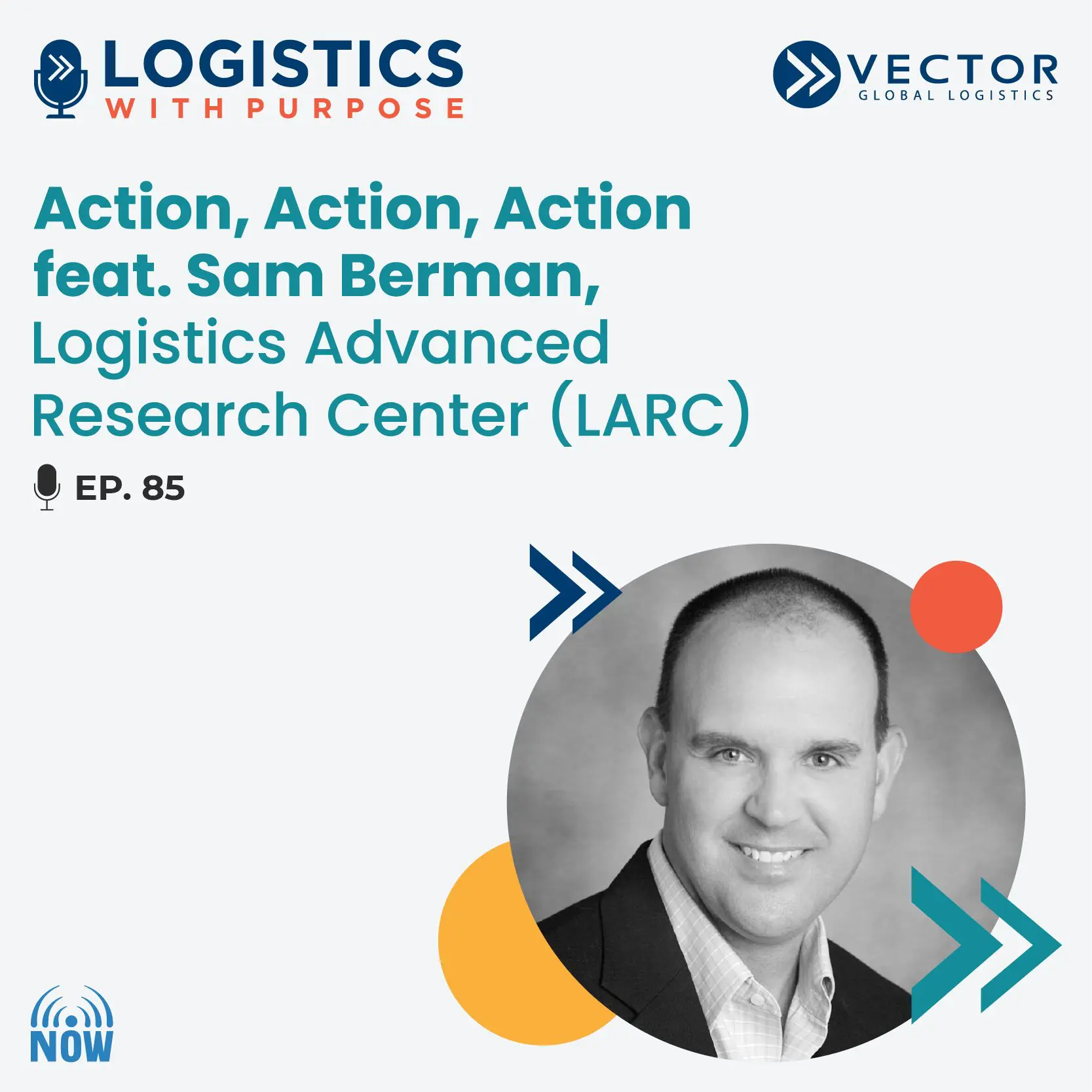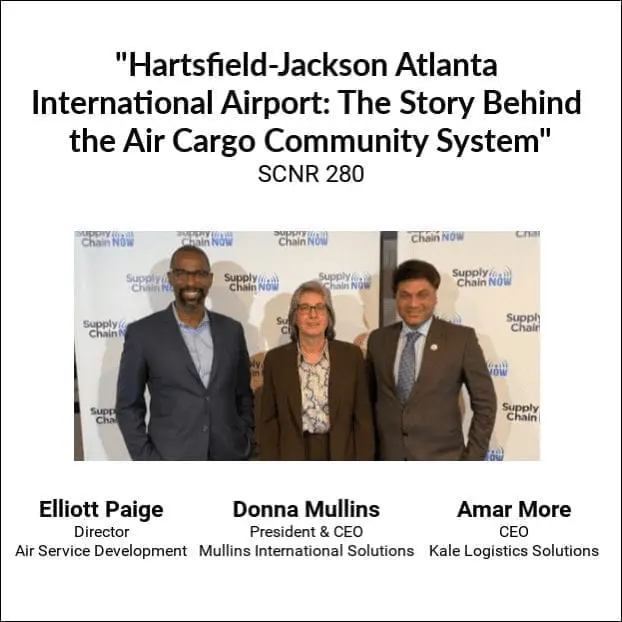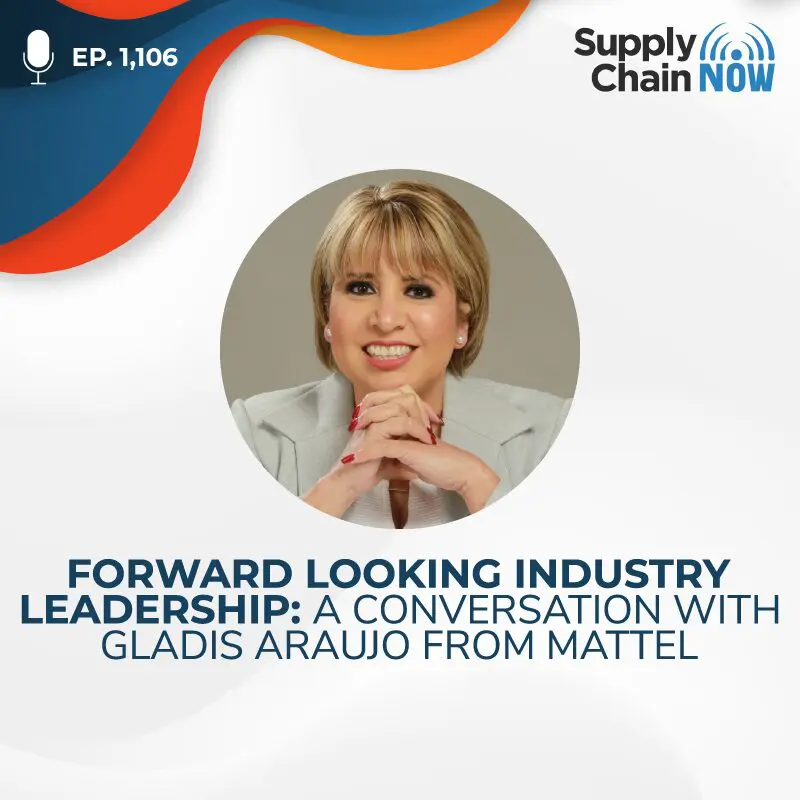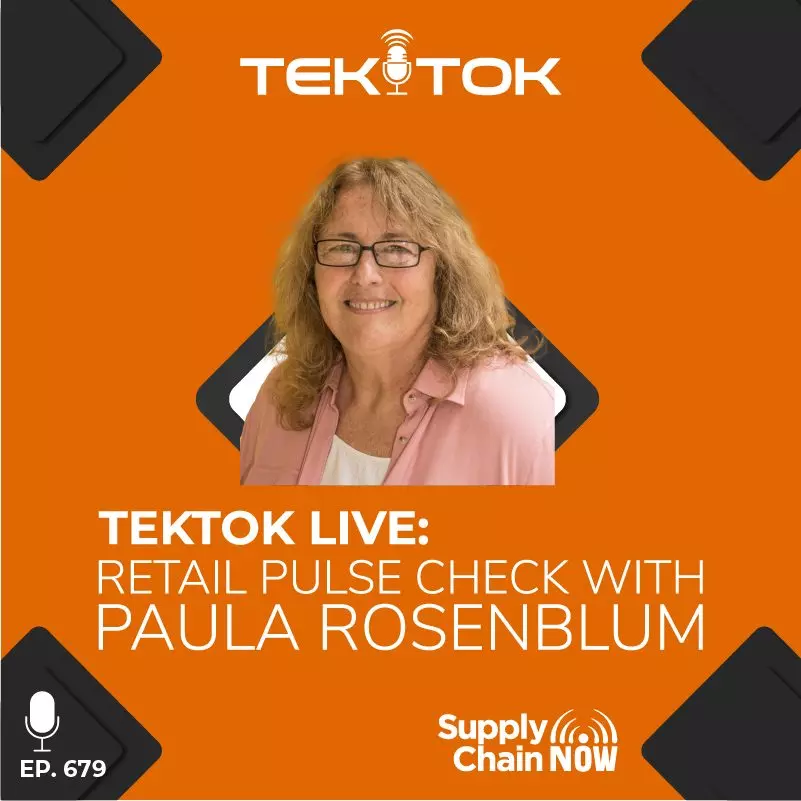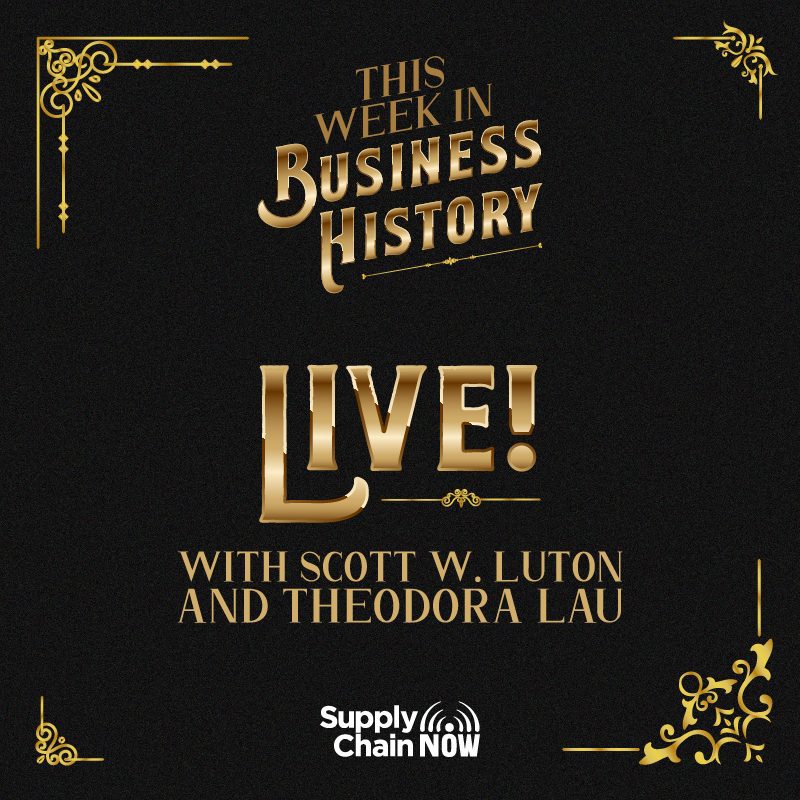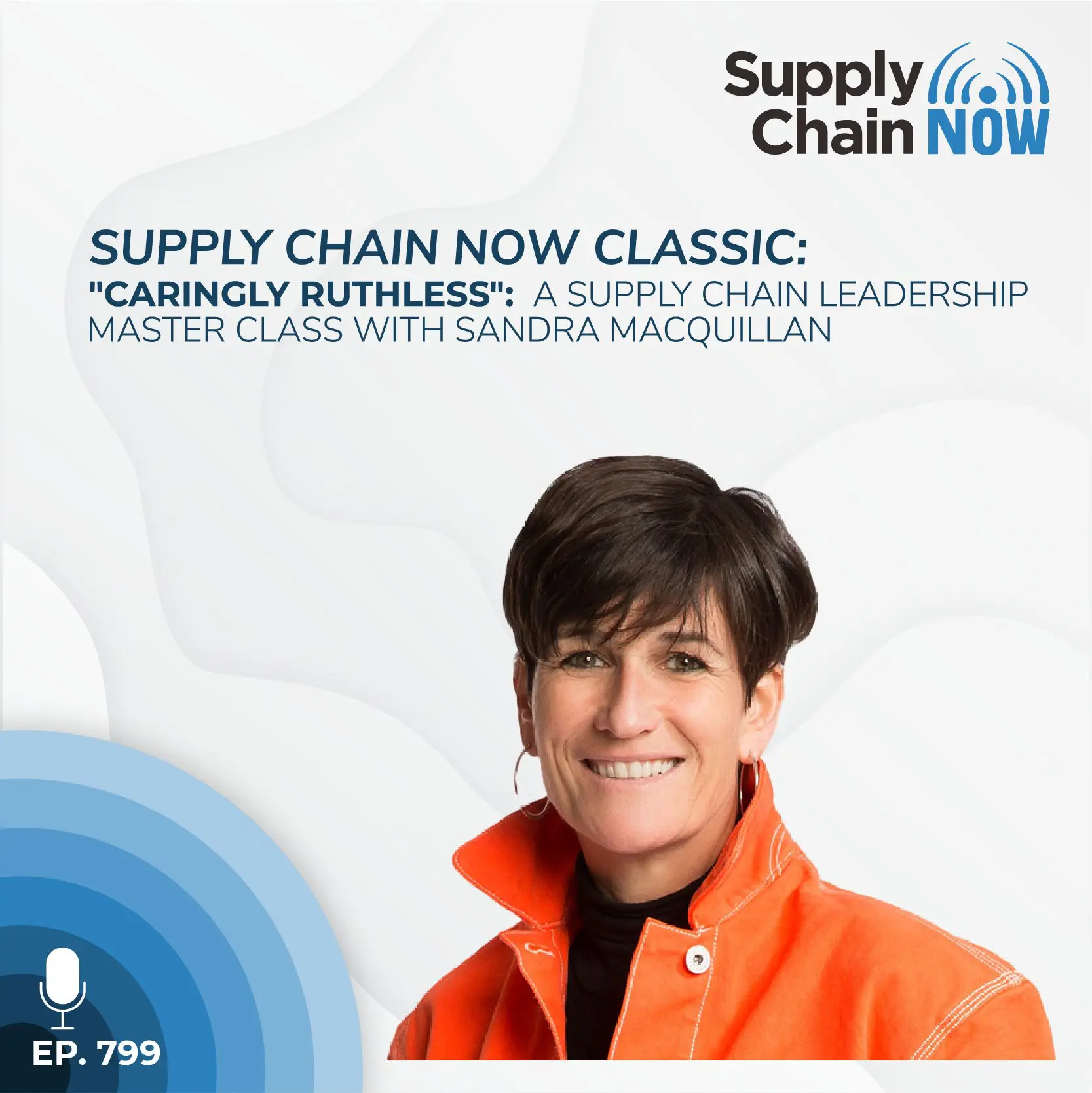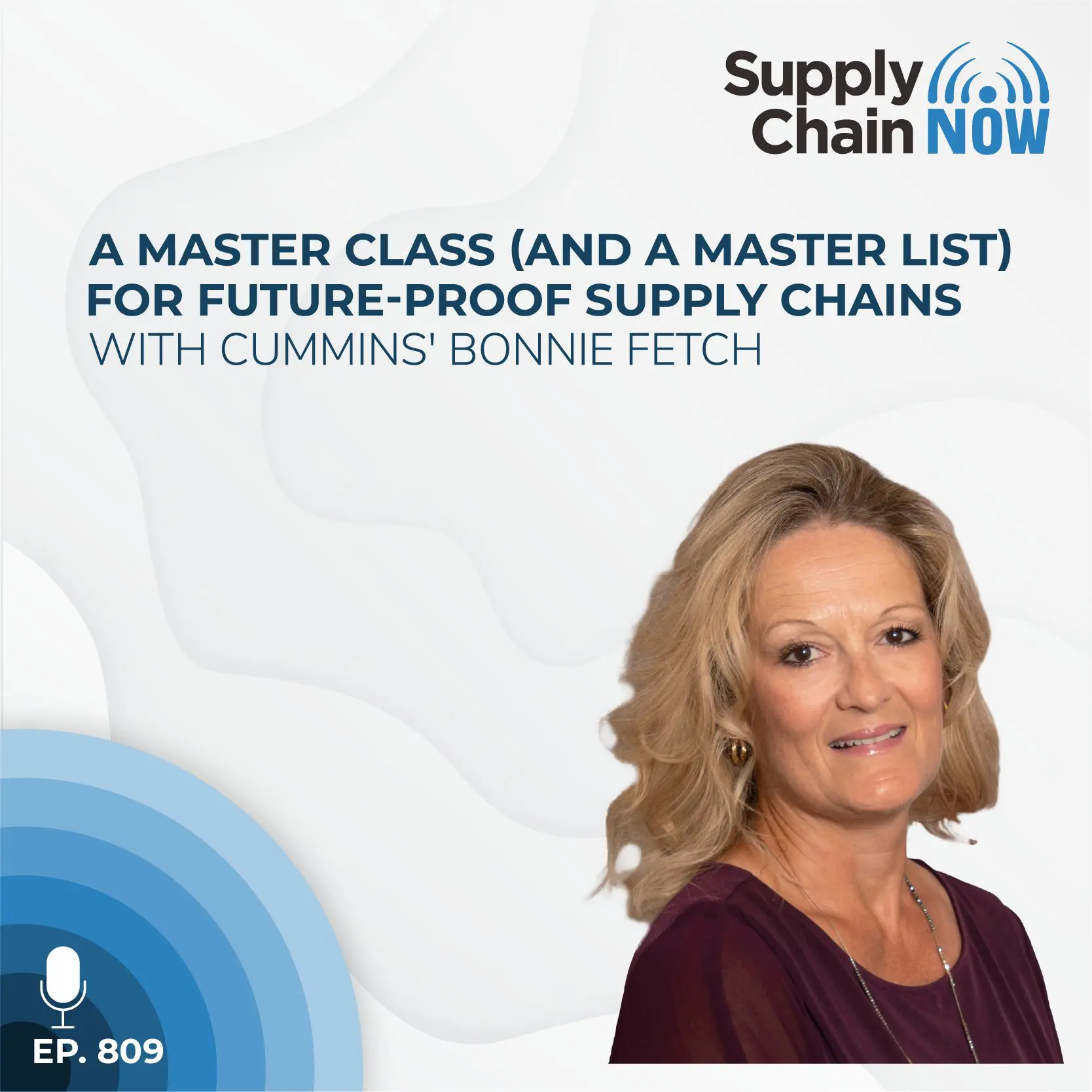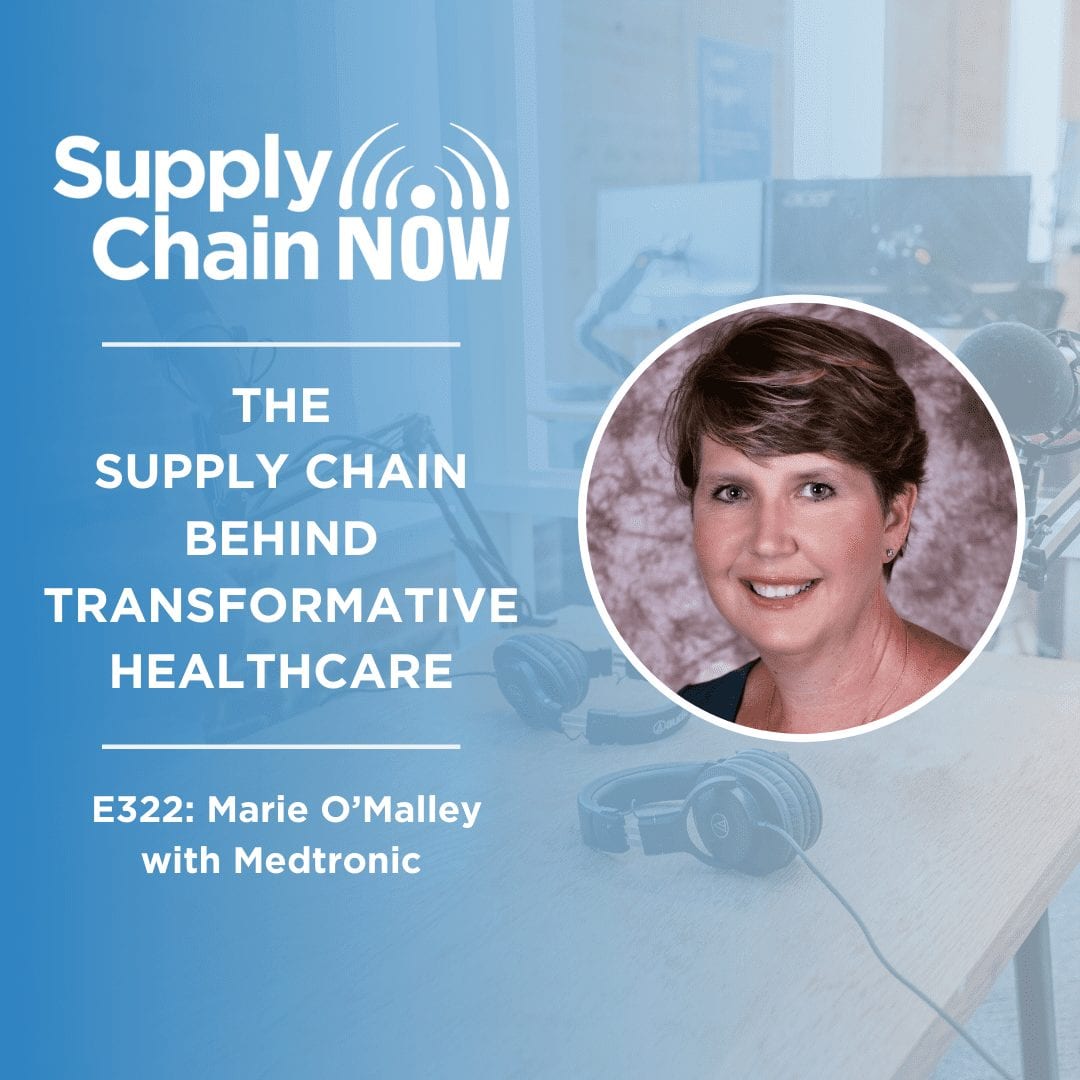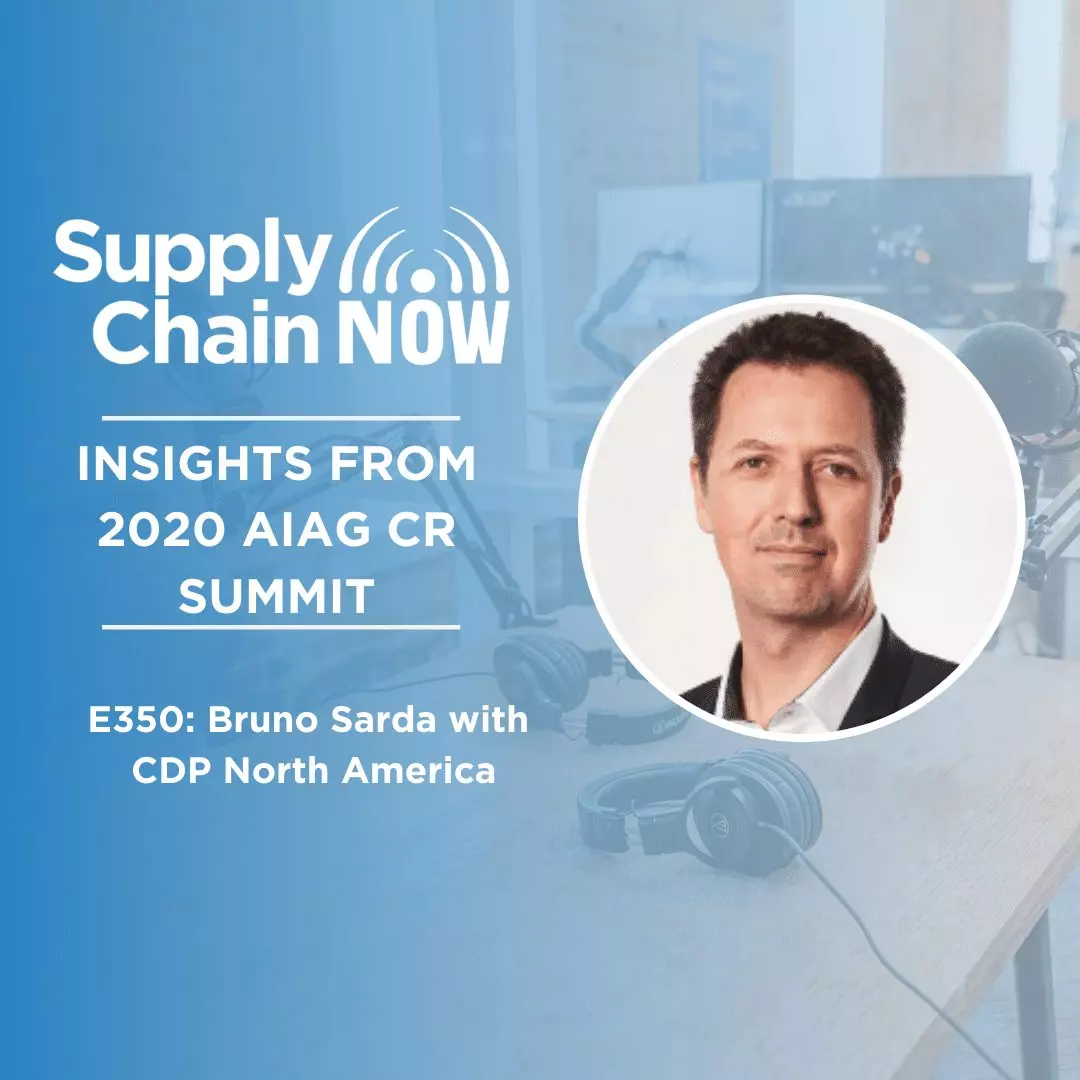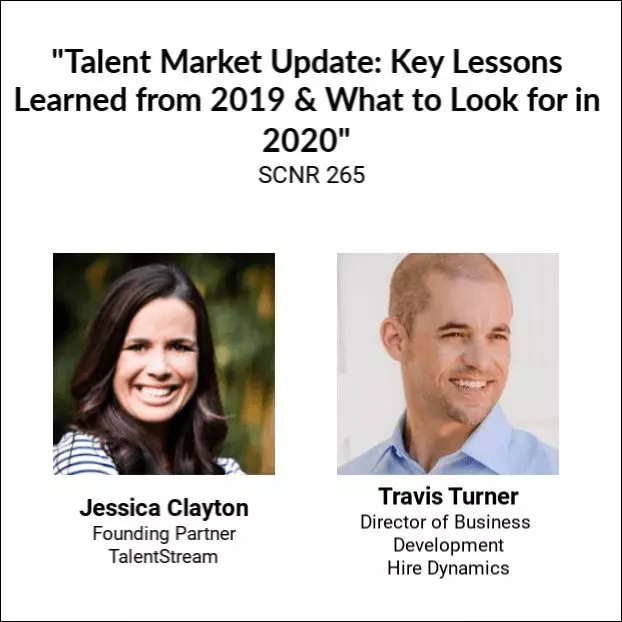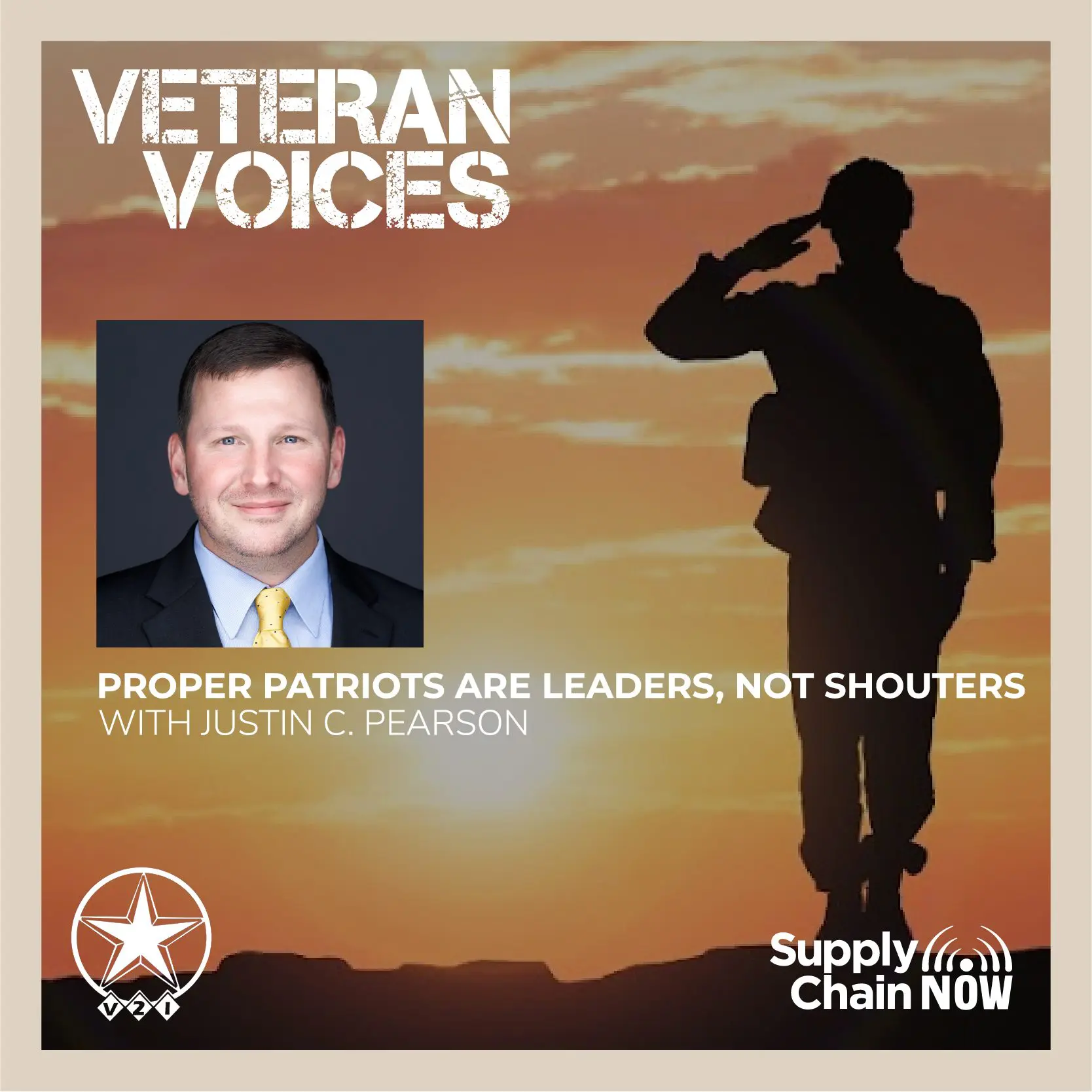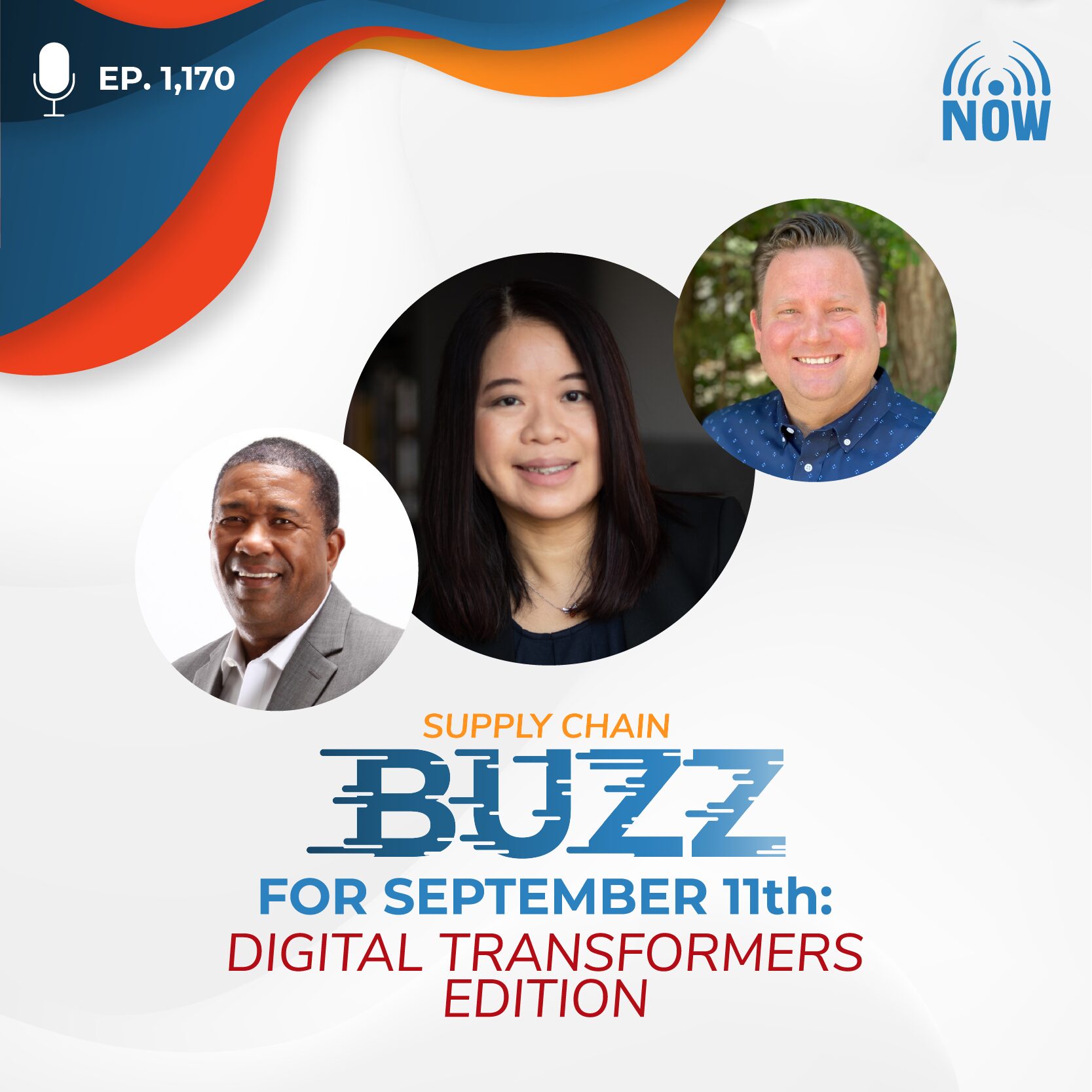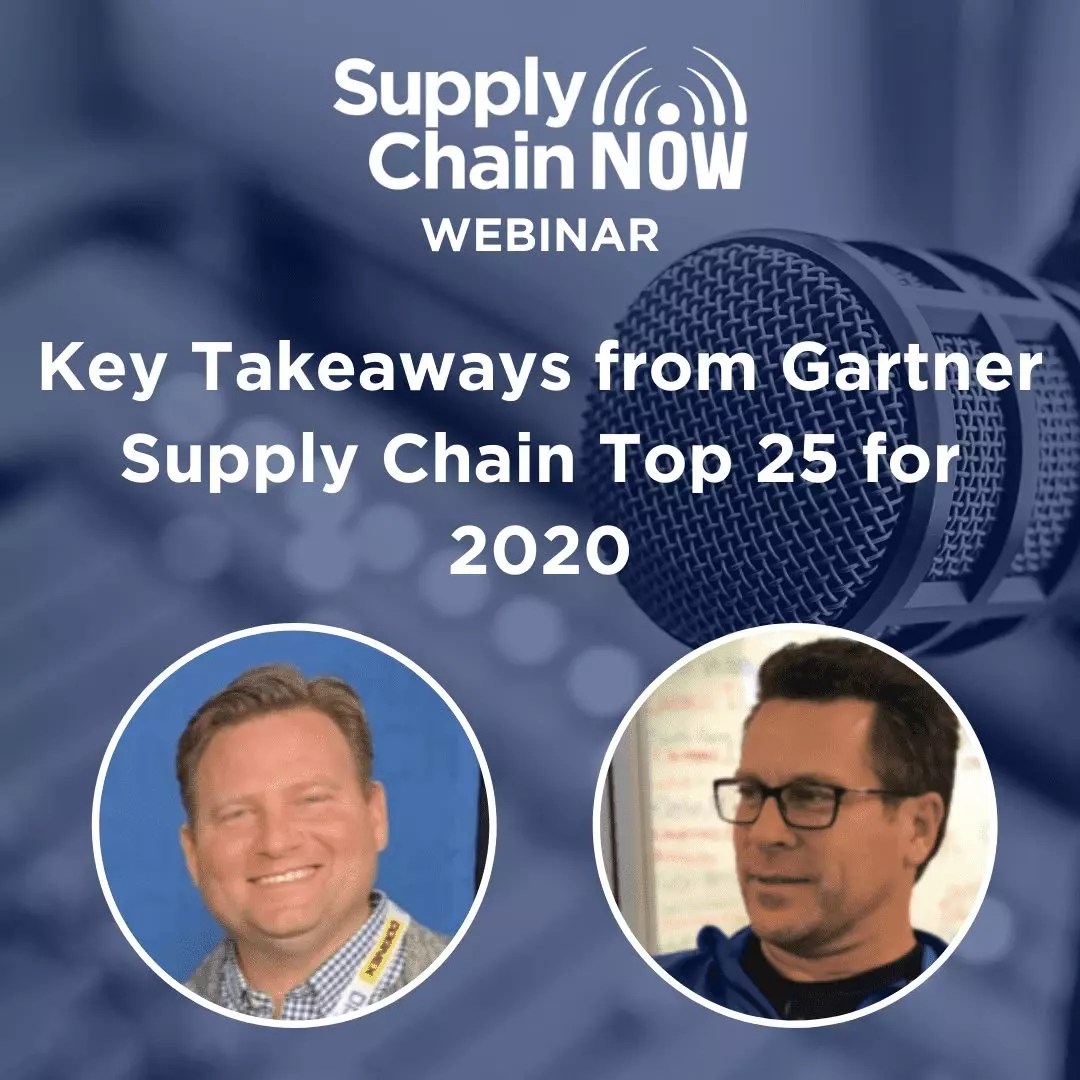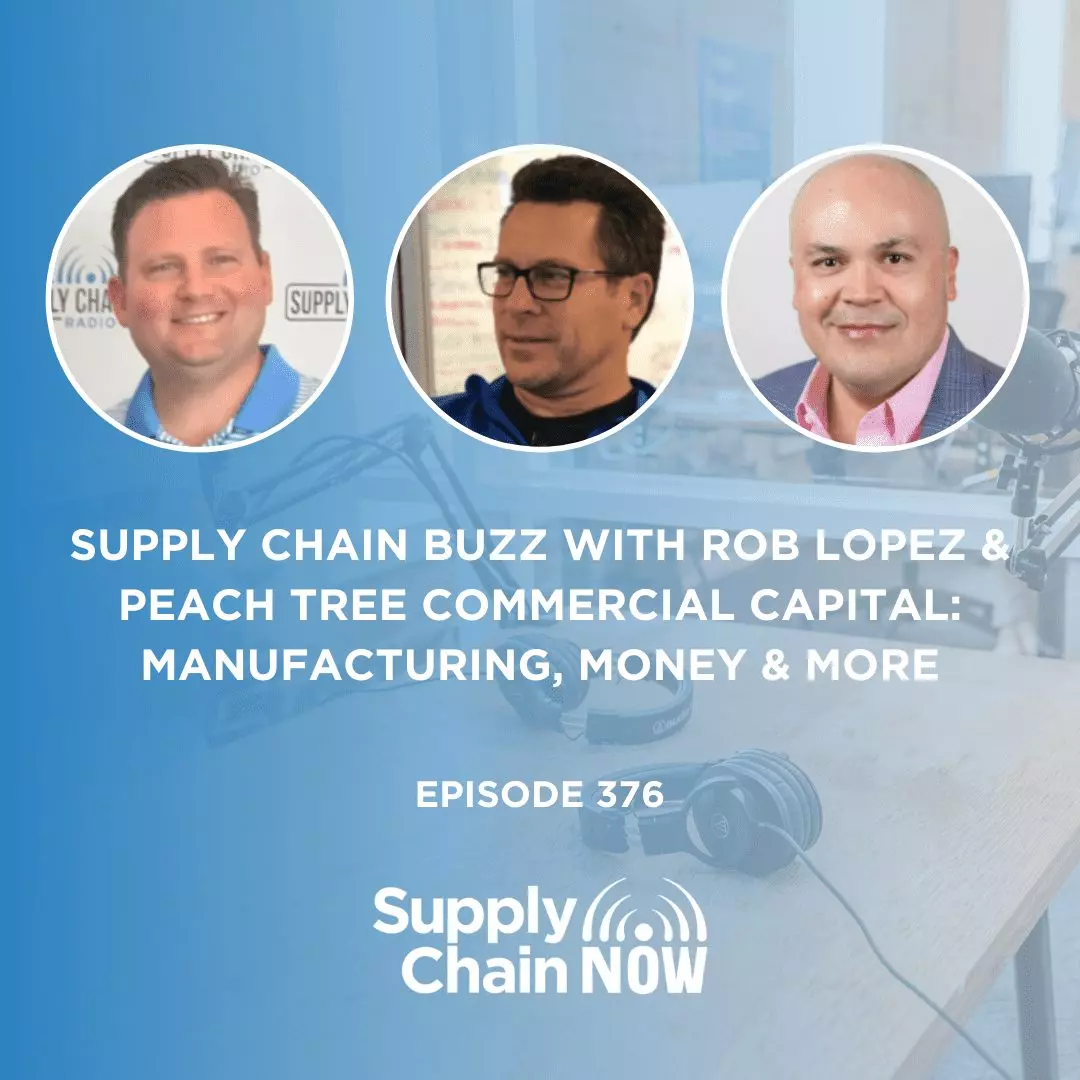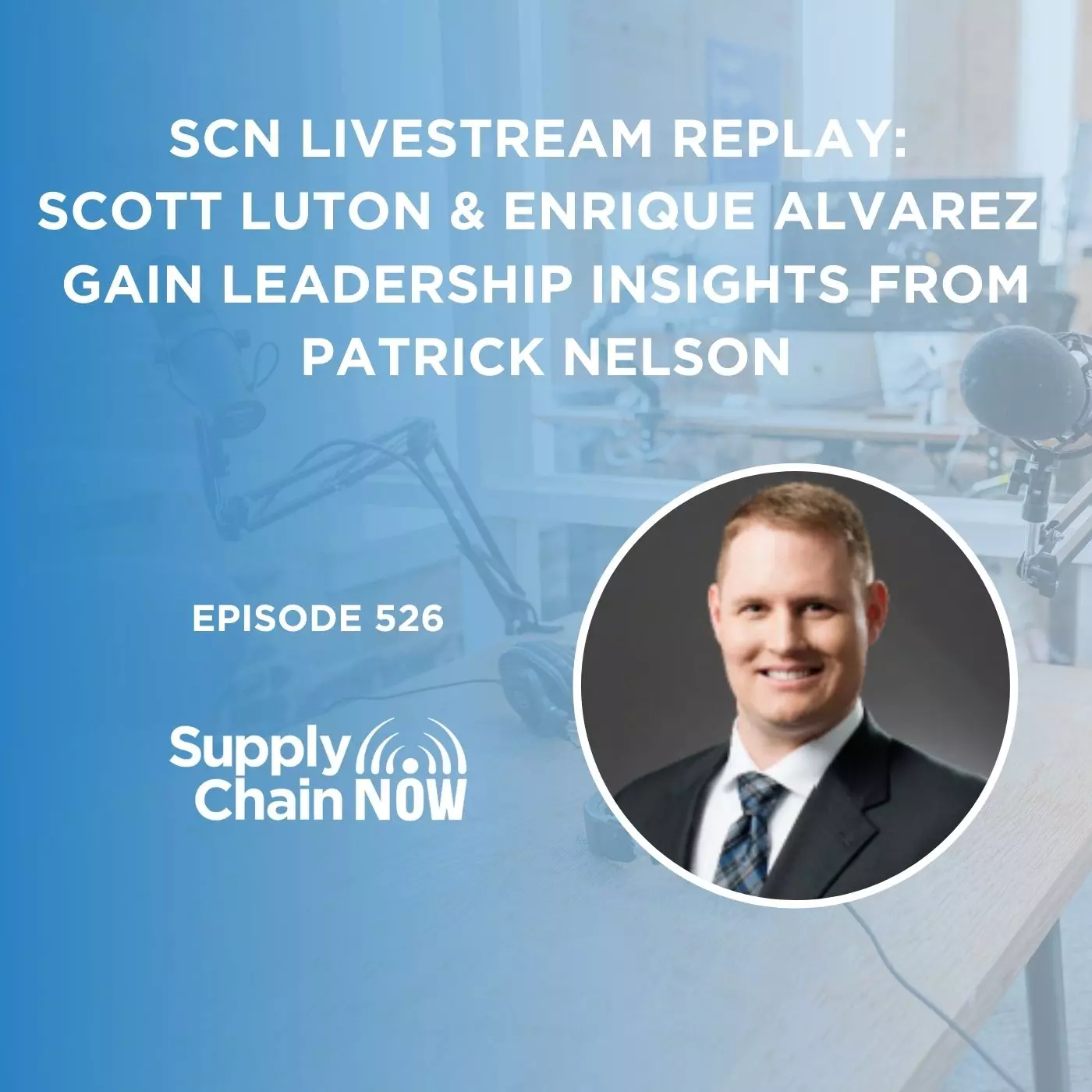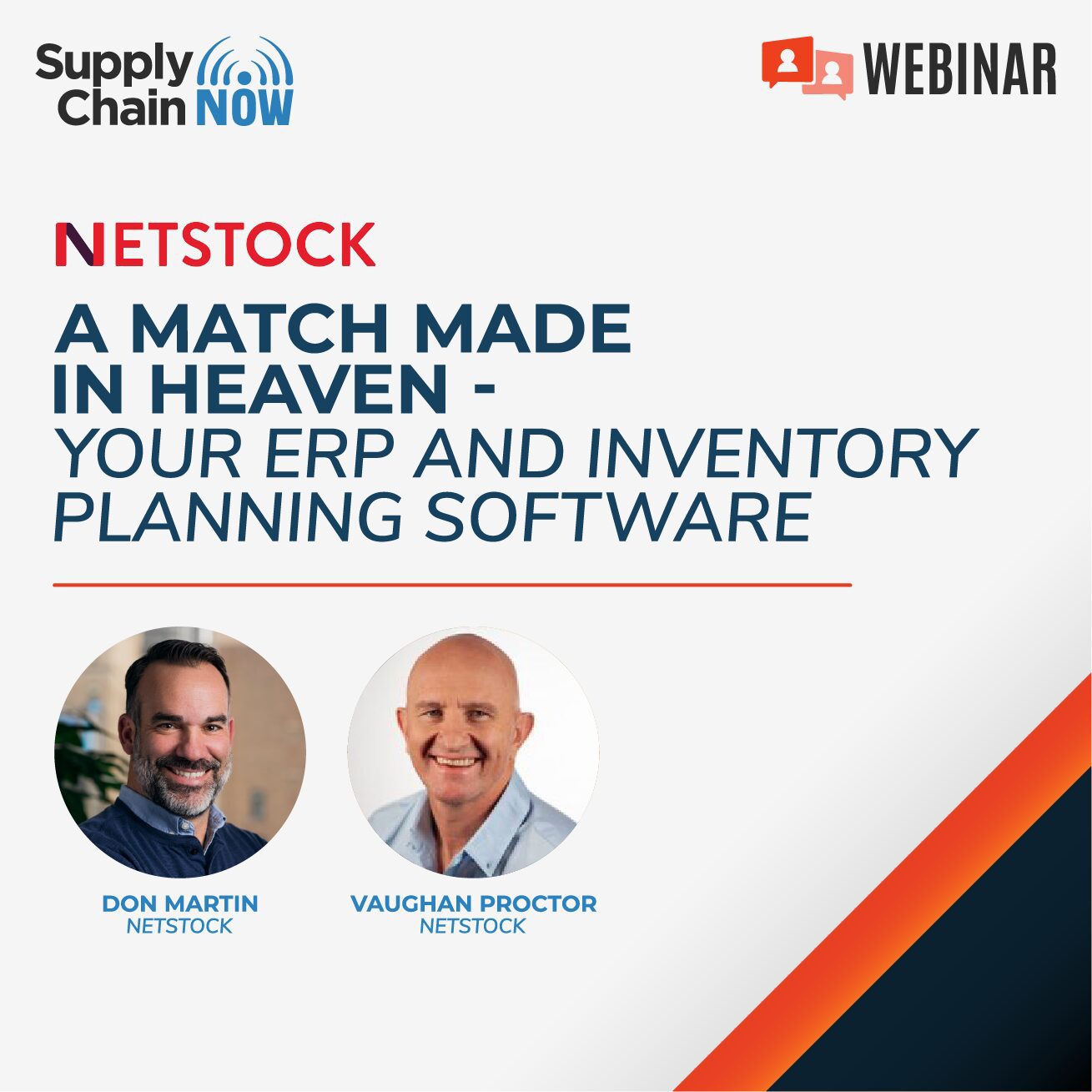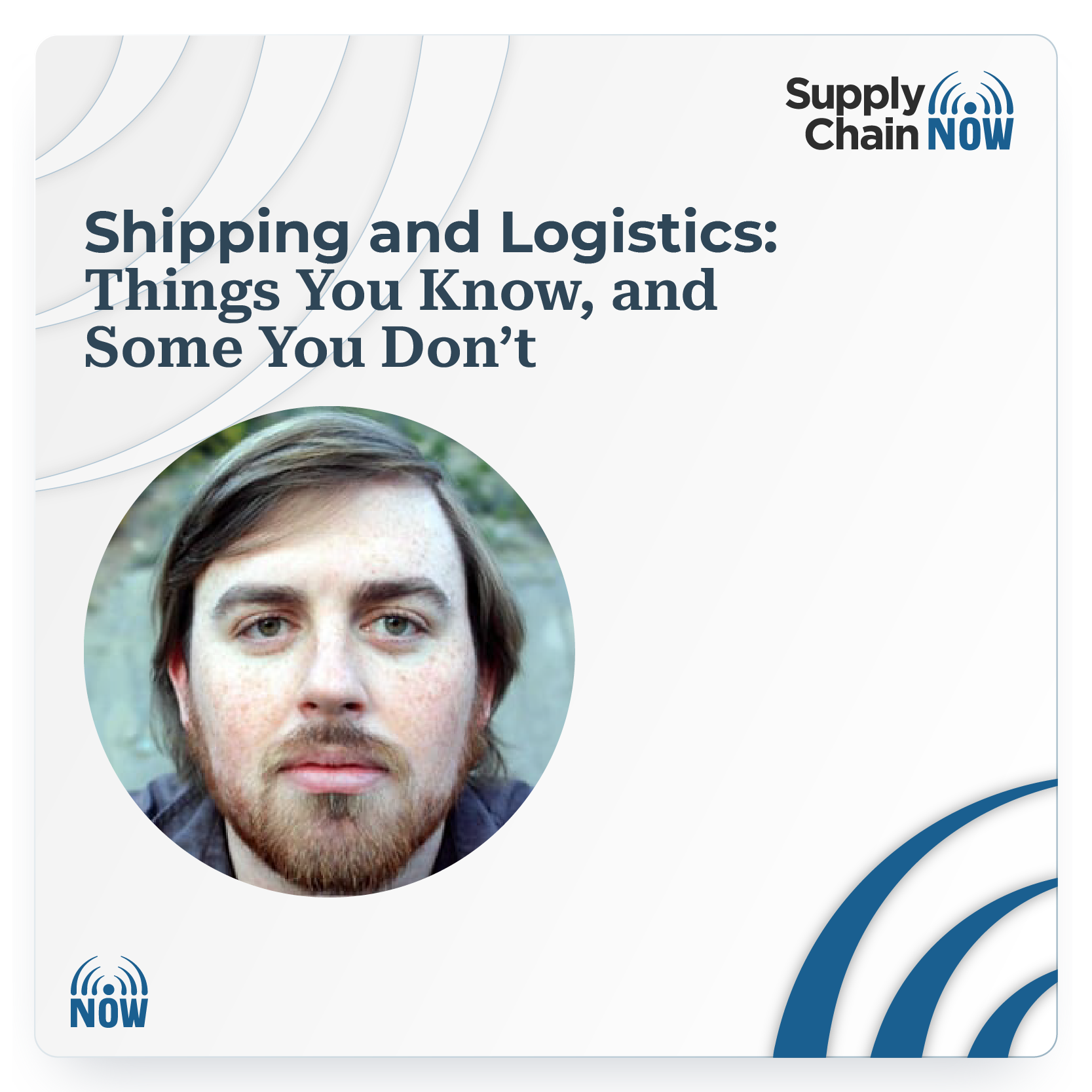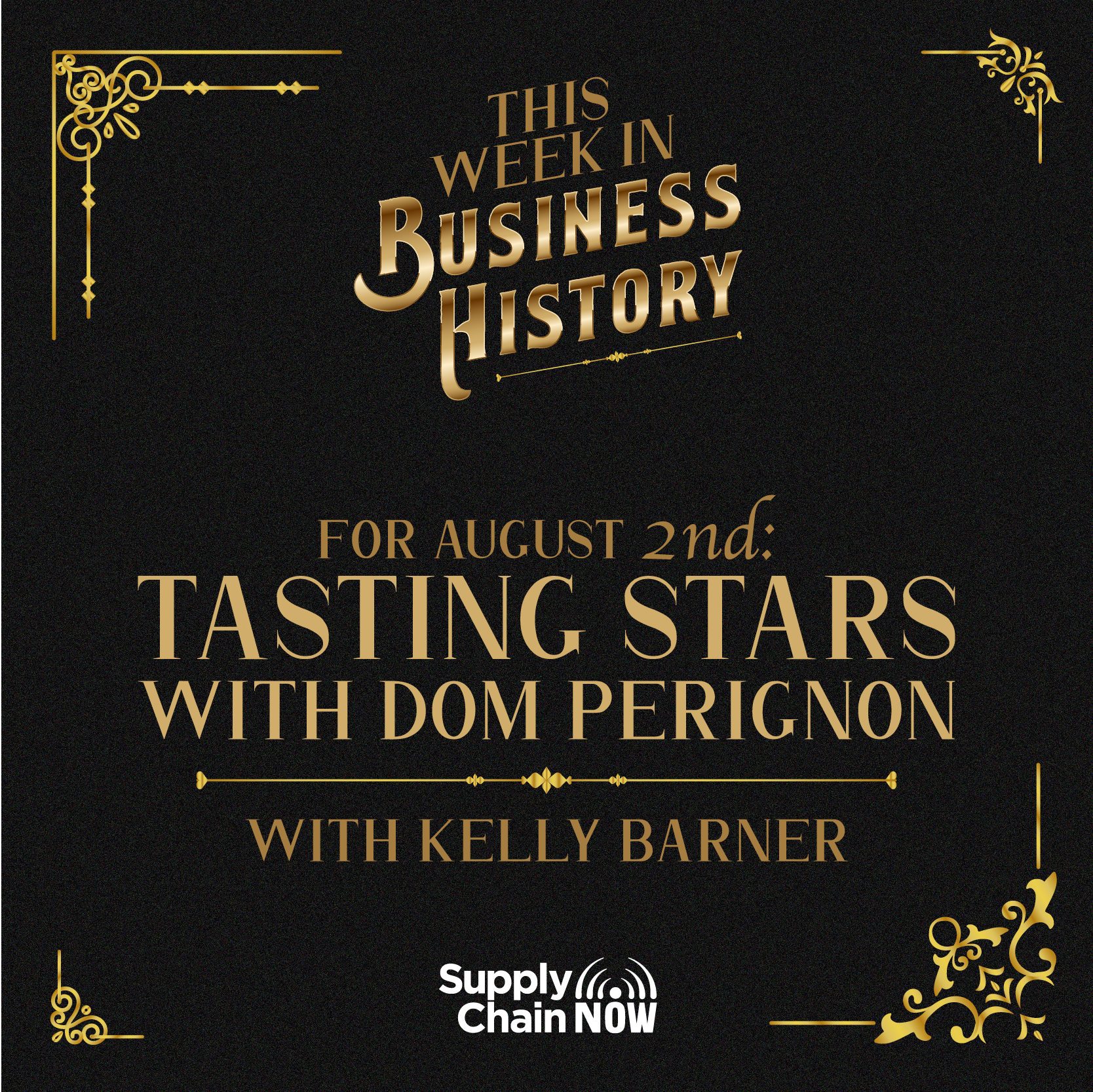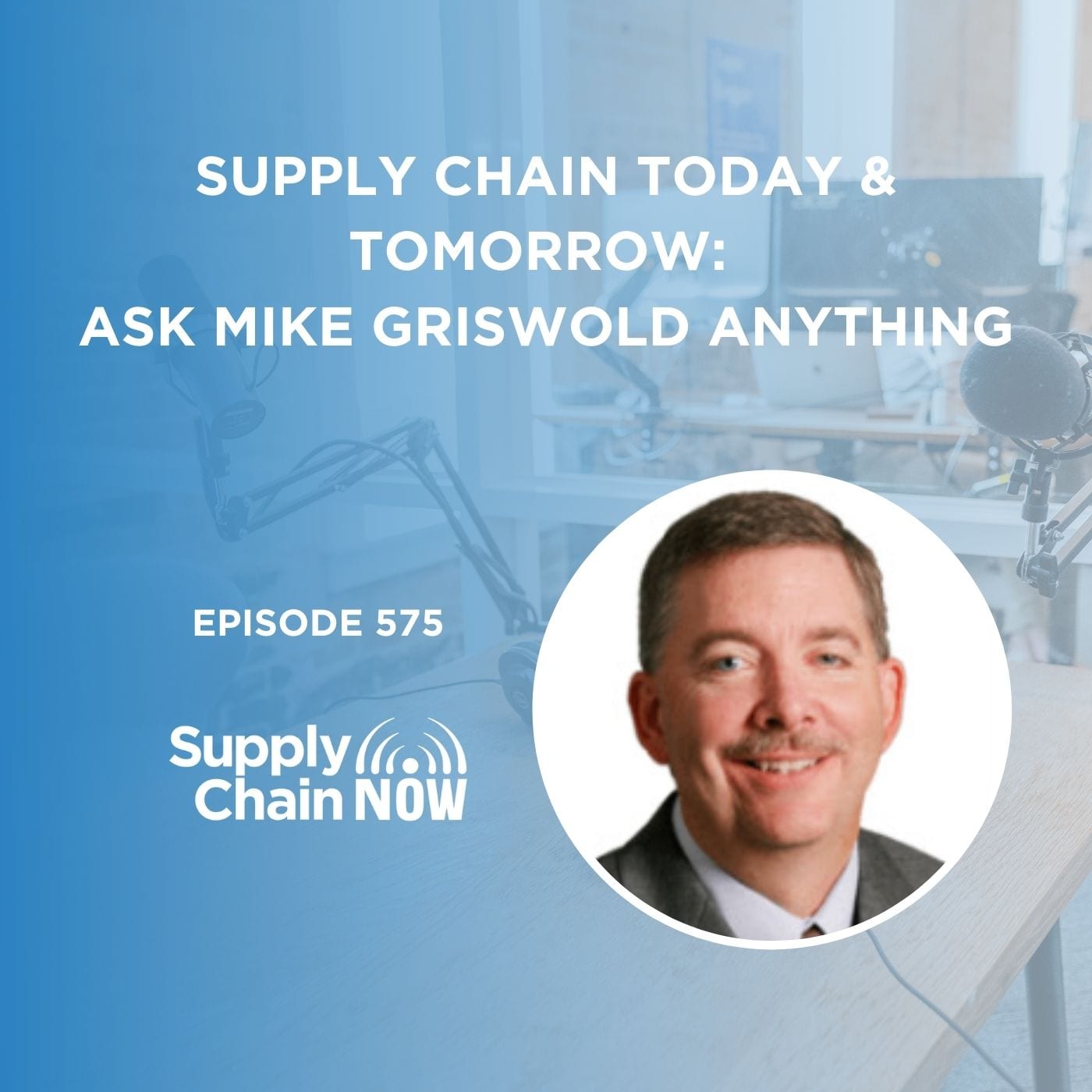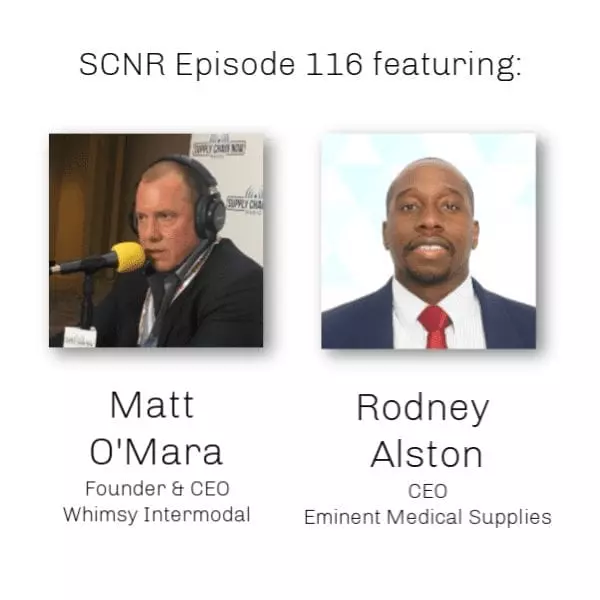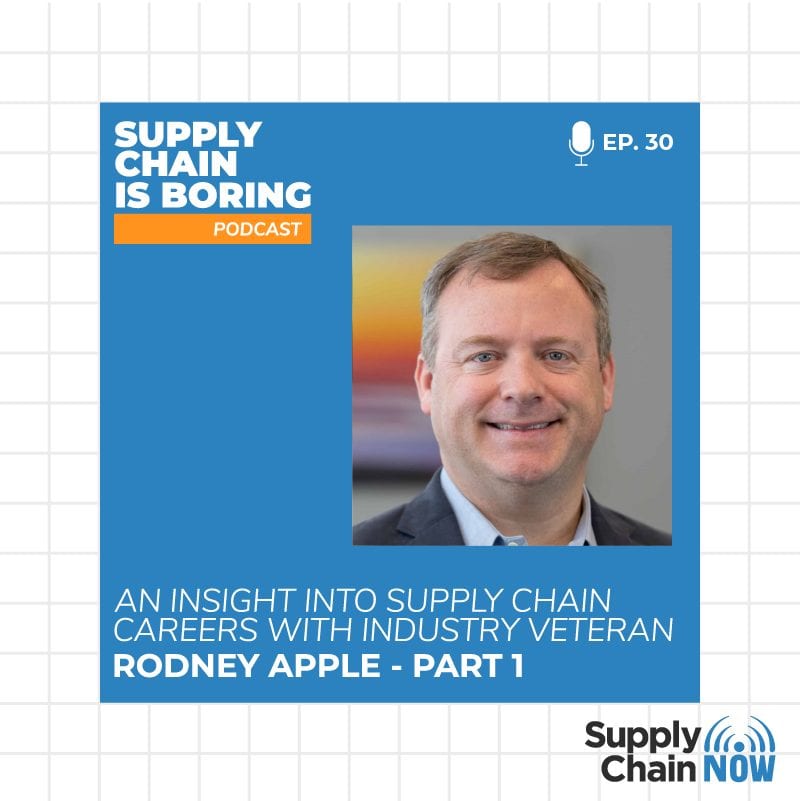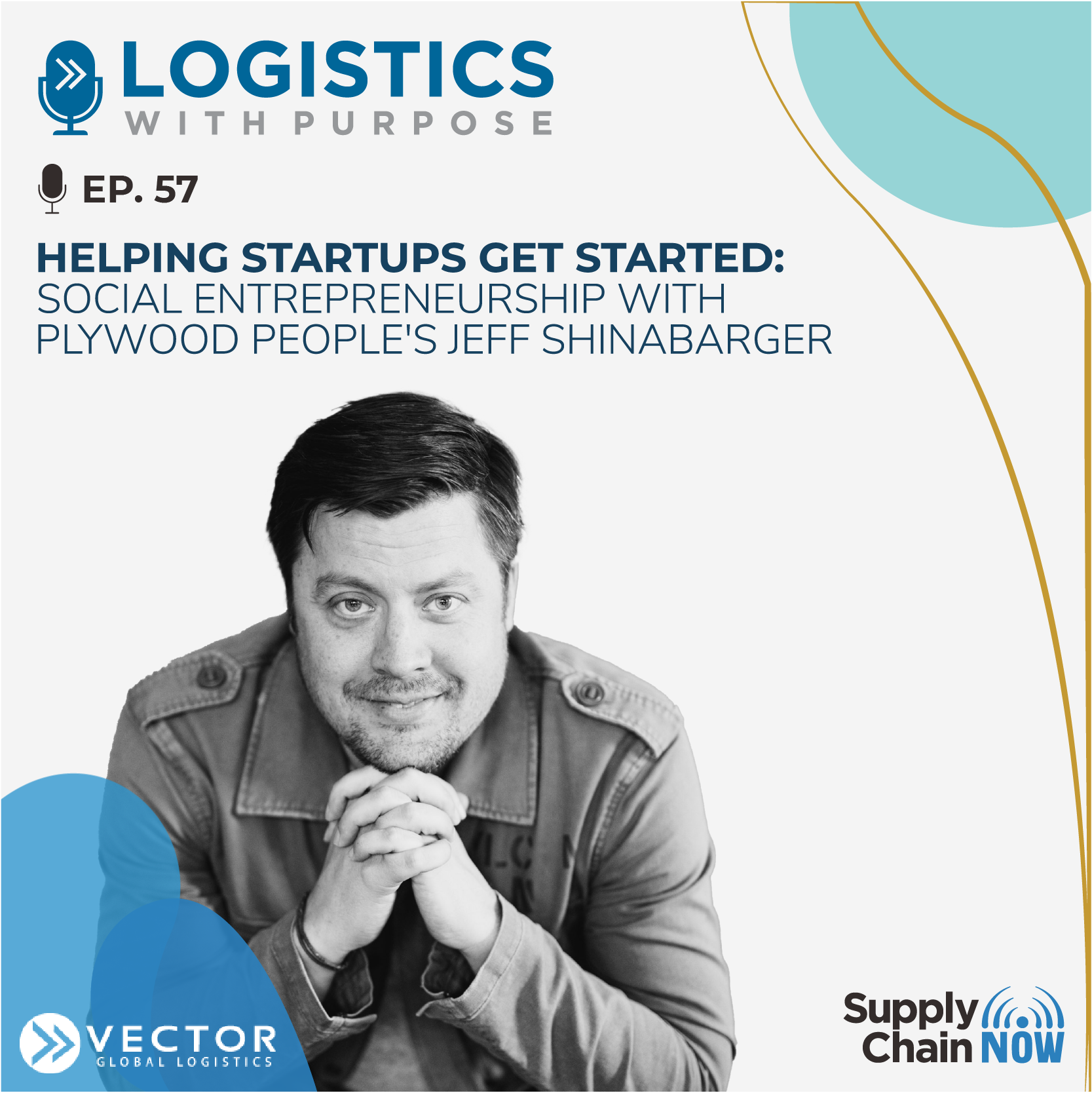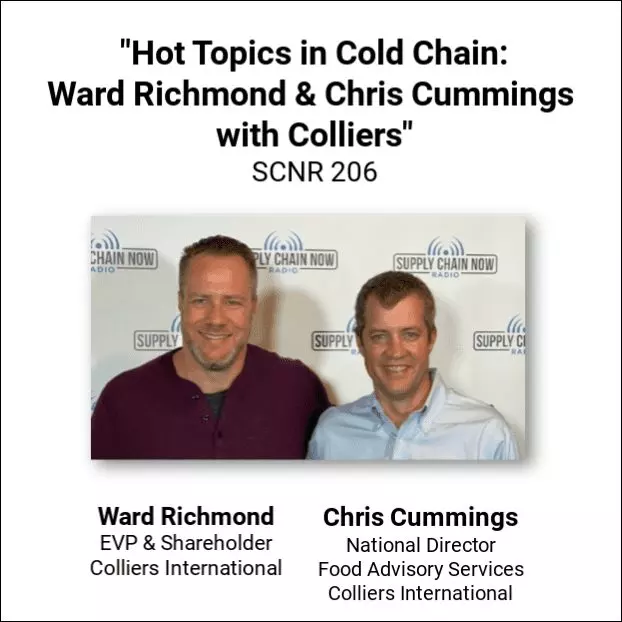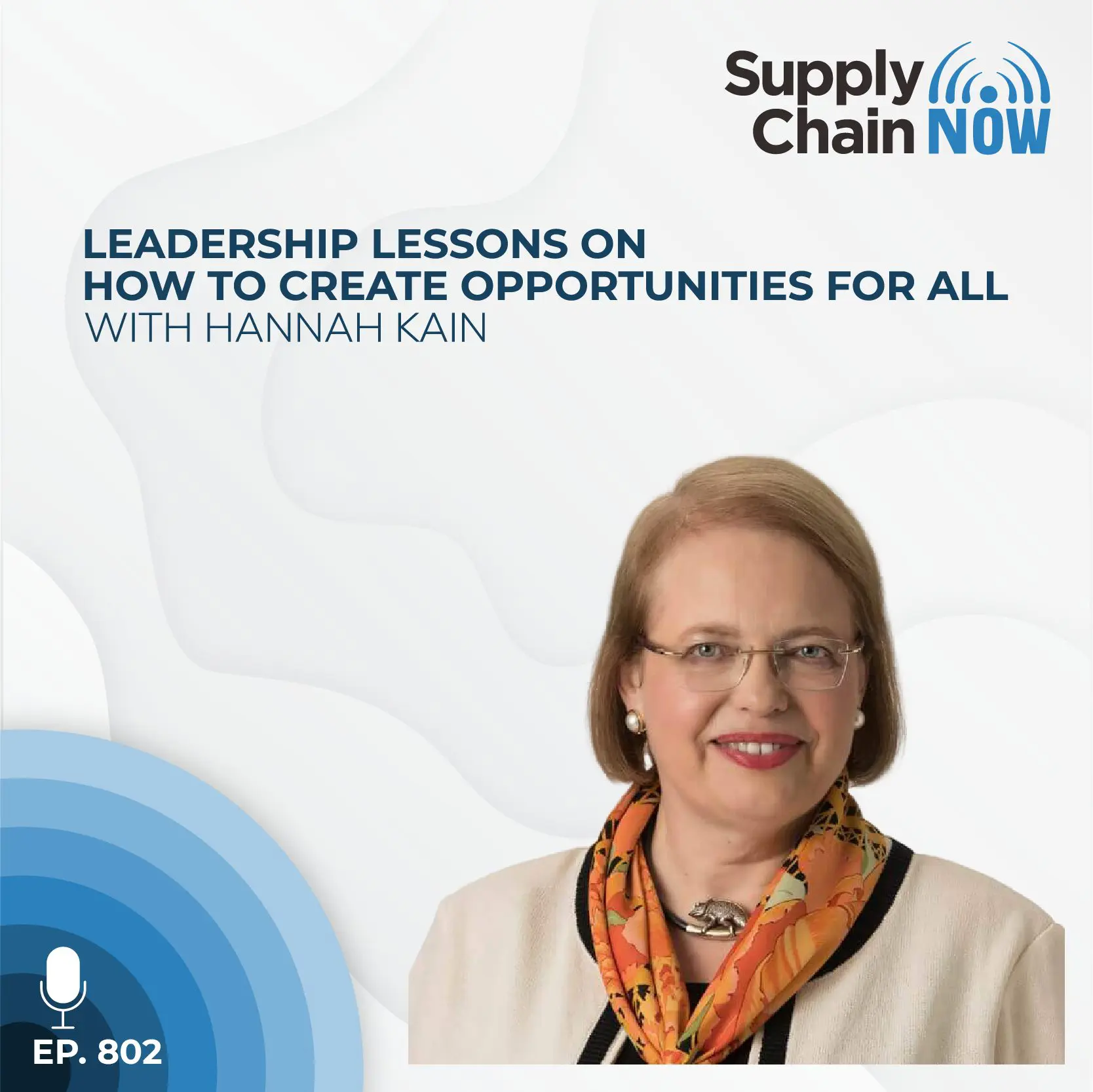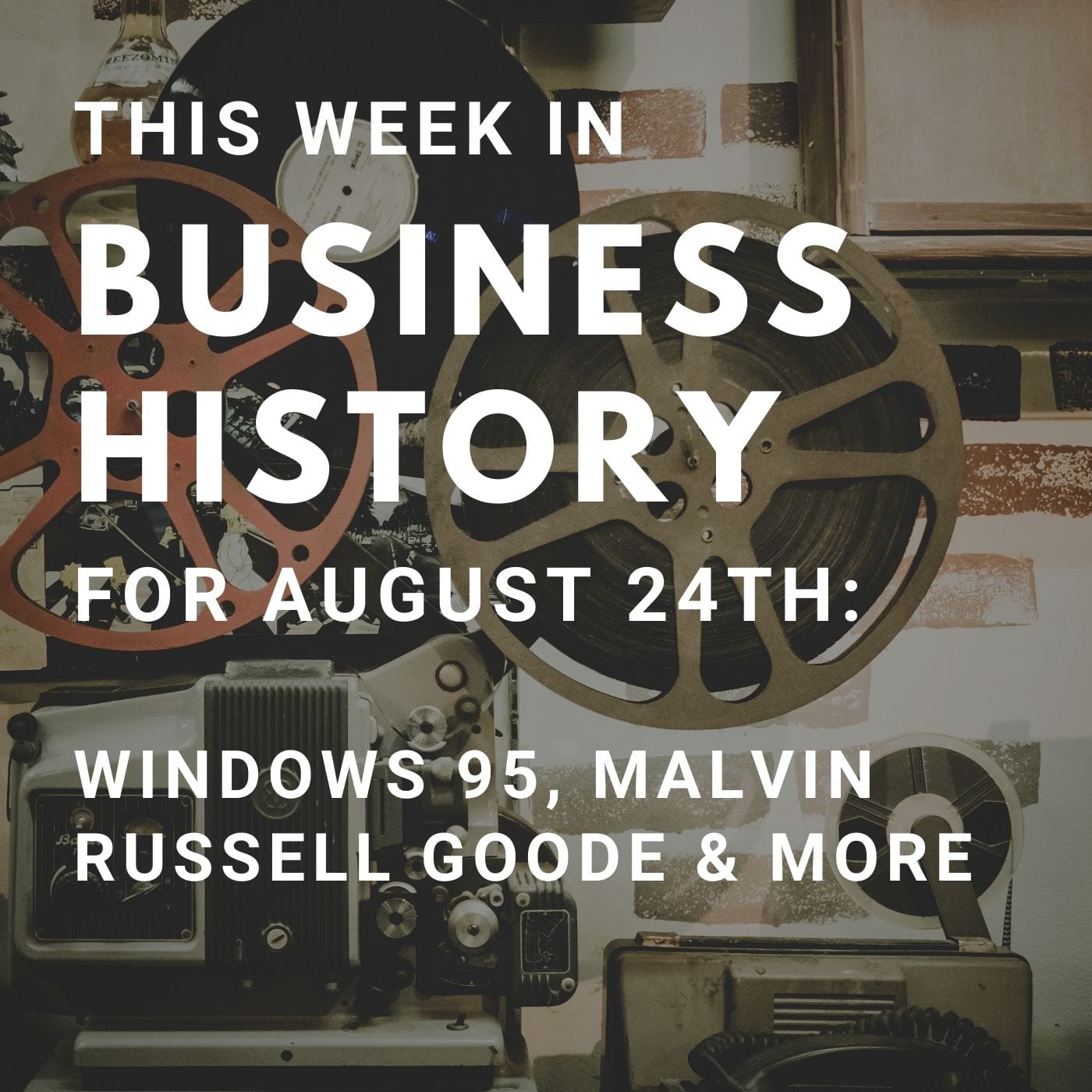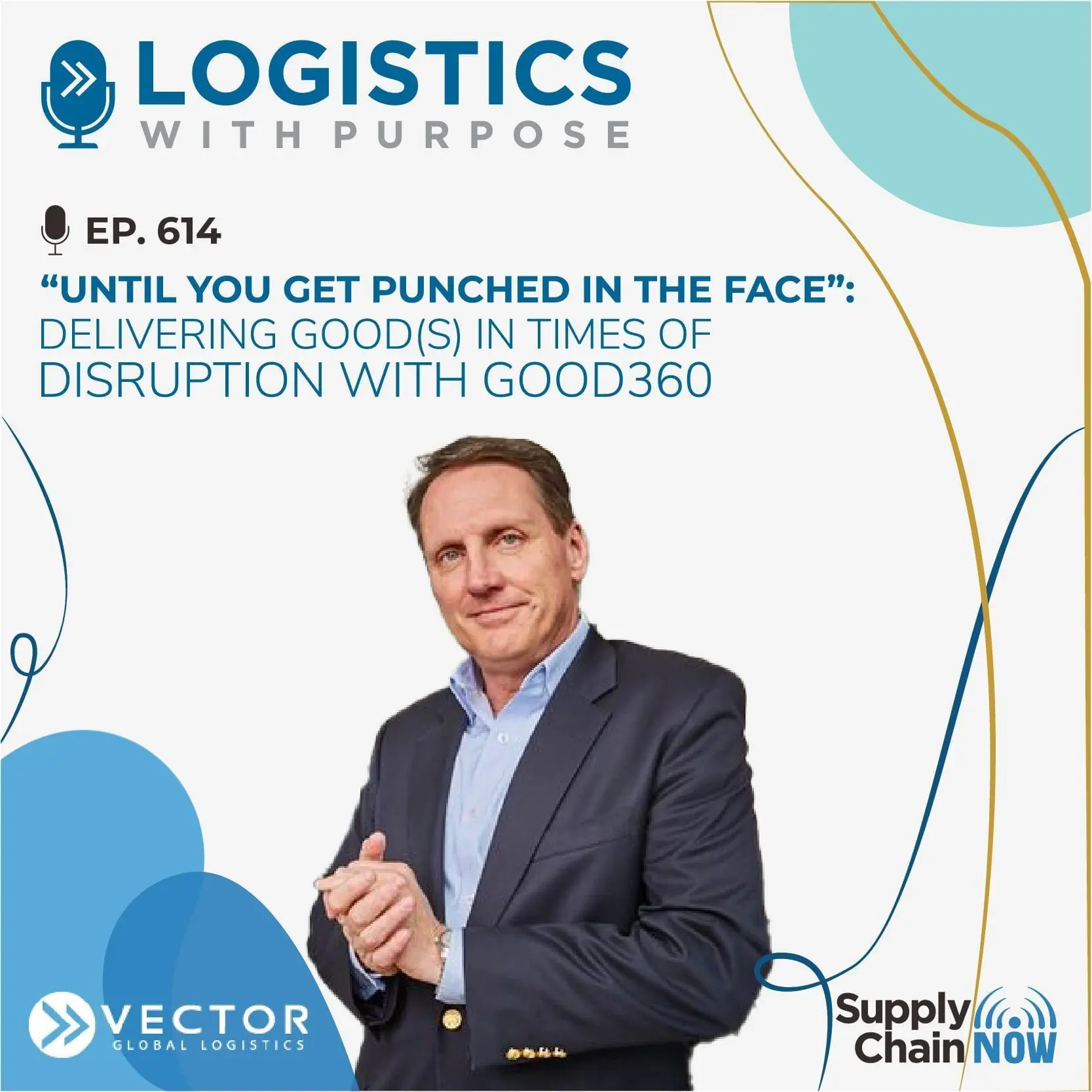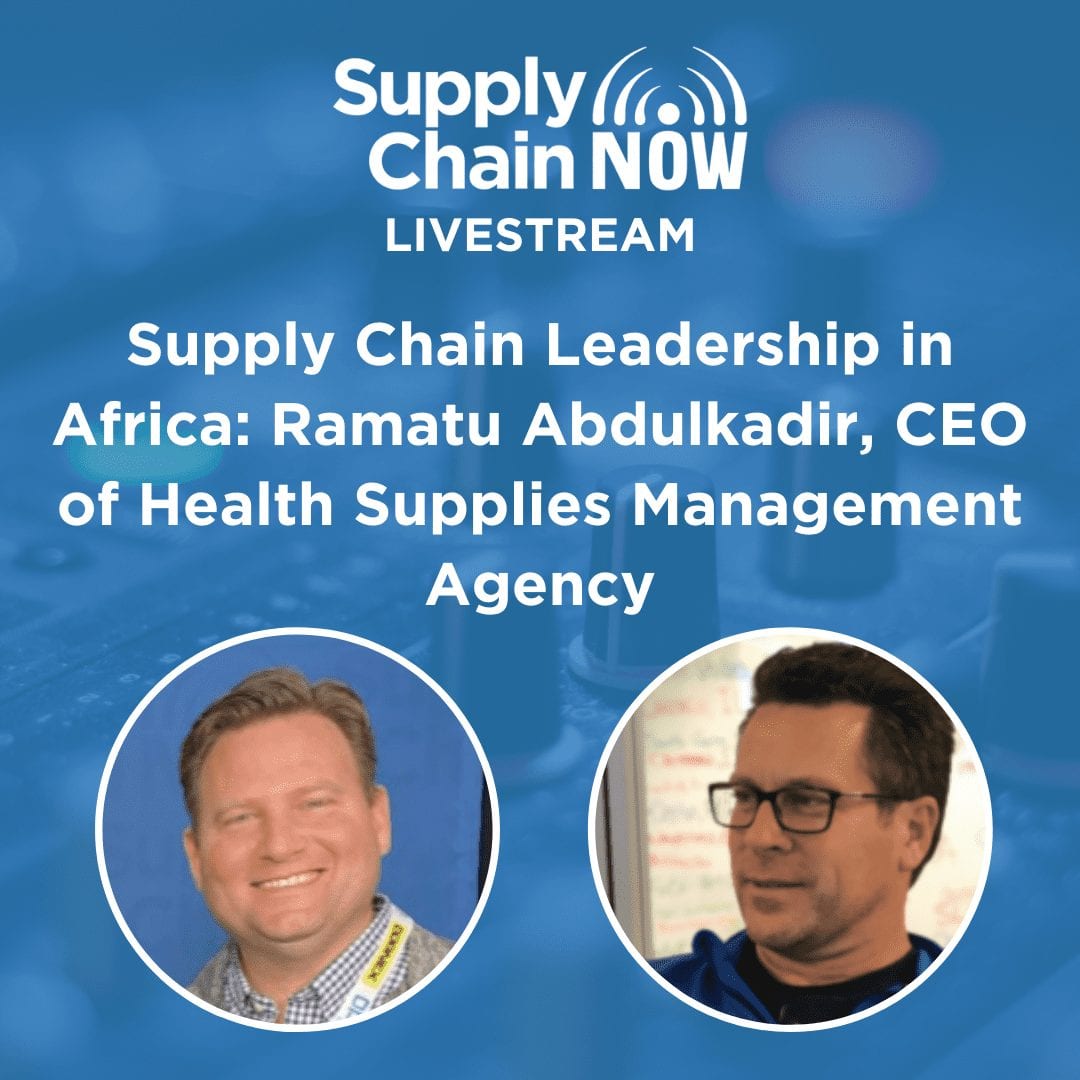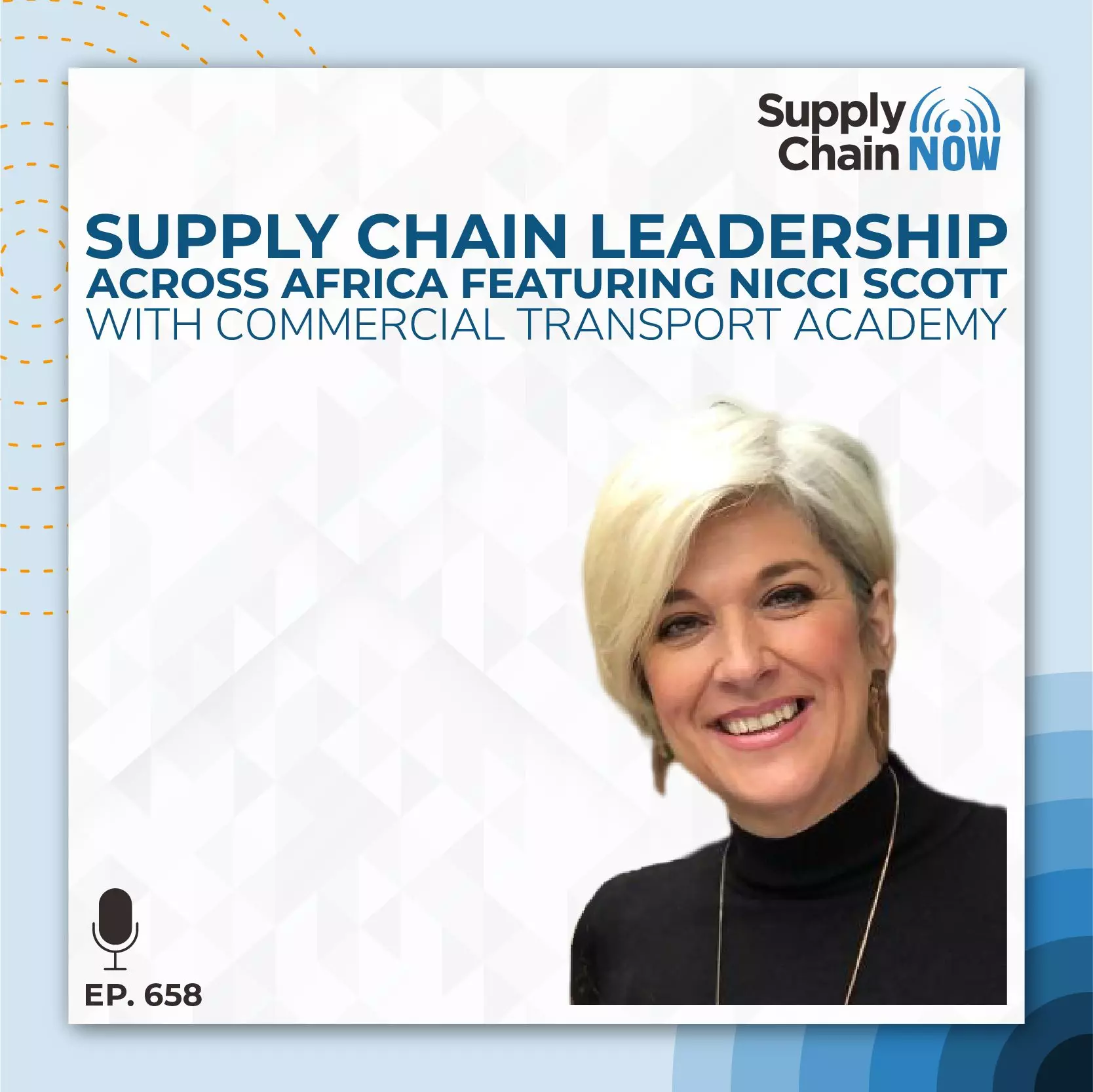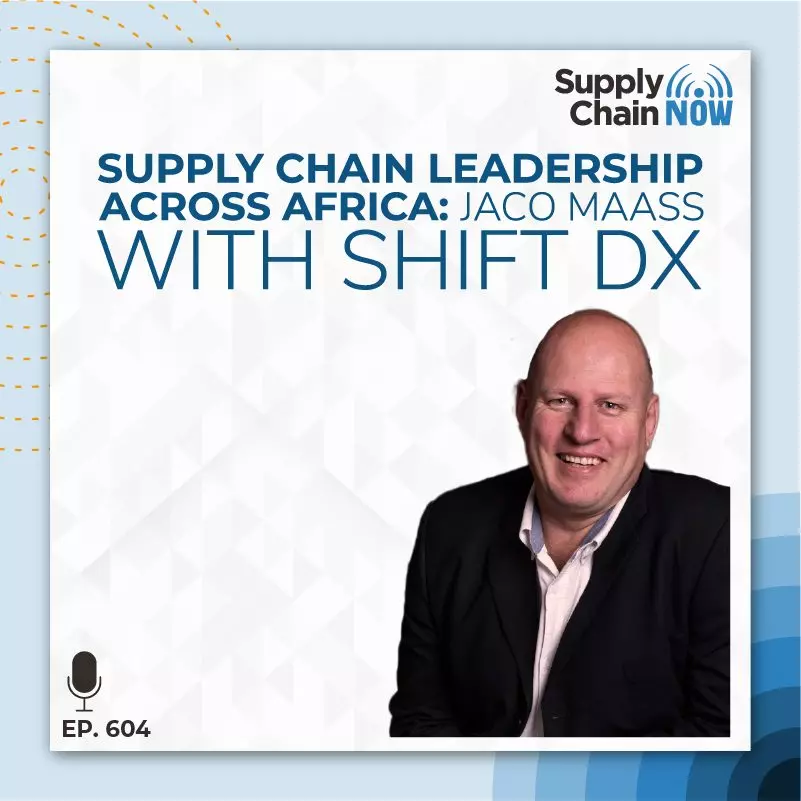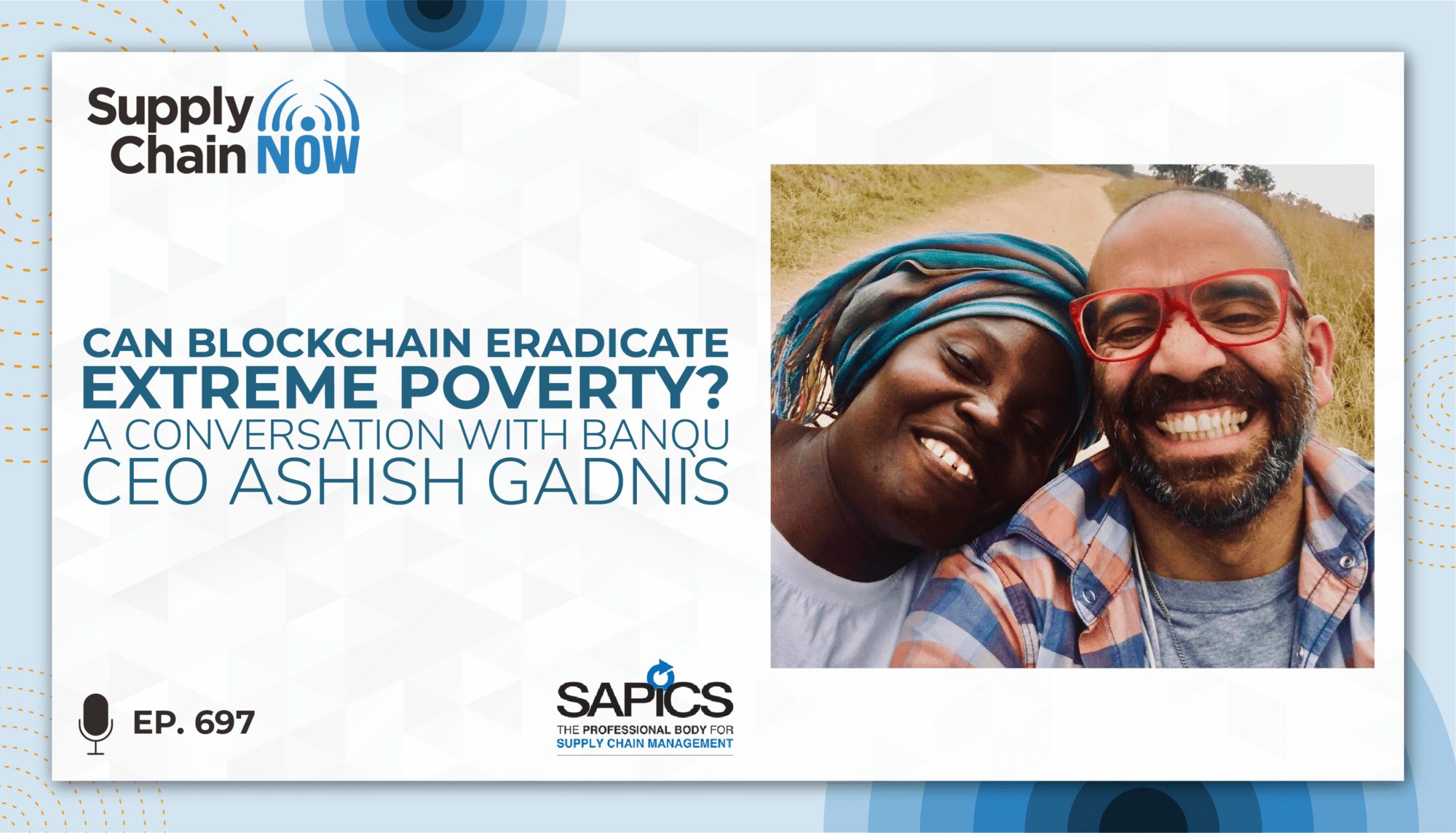
Episode Summary
“That’s when I realized that the traditional systems don’t work because it’s a data dictatorship, no matter how you look at it. But there’s a fundamental definition of blockchain that I gravitated to, which is super plain English, which is if two or more people participate in a transaction, both parties rightfully get a copy of the transaction.”
-Ashish Gadnis
Barley and blockchain: the winning combination for empowering women farmers across Africa? Ashish Gadnis thinks so, and his supply chain software company BanQu is making it happen. Join us as he shares why he doesn’t believe in philanthropy, the childhood power of the popsicle – and the importance of supply chain visibility for enabling a transparent, circular economy that eradicates both extreme poverty and child labor practices globally.
Episode Transcript
Intro/Outro (00:03):
Welcome to supply chain. Now the voice of global supply chain supply chain now focuses on the best in the business for our worldwide audience, the people, the technologies, the best practices, and today’s critical issues. The challenges and opportunities stay tuned to hear from those making global business happen right here on supply chain now.
Scott Luton (00:31):
Hey, good morning, Scott Luton and Jenny Froome with you here at supply chain. Now, welcome to today’s show Jenny on today’s show. We’re continuing our supply chain leadership across Africa and beyond with this episode here today, of course, in conjunction with our dear friends at St. Pics, Jenny Froome serves as COO of St. Pick’s doing wonderful work from a professional development, uh, networking, uh, connectivity, and be in and a lot more, uh, standpoint with the team over at St. Picks. You can check them out, say picks.org, Jenny. Good morning. How are you doing? Good
Jenny Froome (01:04):
Morning. Good afternoon. Doing well. The sun is shining and it’s a great day.
Scott Luton (01:09):
Wonderful. You know, maybe I haven’t noticed it, but the zebra painting behind you, is that a new one or is that, or have I been blind in previous interviews? You’ve
Jenny Froome (01:19):
Been blind in previous interviews. It’s been there. It’s been there for a while. Actually, since we did that ASCA conference last year, we put up something to reflect the fact that I’m sitting in South Africa and in England or otherwise.
Scott Luton (01:35):
I love it when I’ve taught war. In fact, I’ve learned from our dear mutual friend Loris, a Siri that zebras do indeed change your stripes contrary to many assumptions, but we’ll, we’ll save that for later later episode. Hey, quit programming folks. You’re going to love today’s conversation with a wonderful guest. Um, but don’t, you don’t want to miss these. So make sure you find supply chain now, wherever you get your podcasts from click subscribe. So you don’t miss a single thing. Okay. Let’s dive into Jenny, this wonderful guests we’ve got here today. Uh, I’m going to share a couple of things about his journey and then we’re going to bring him right on him. Uh, we try to keep the cat in the bag, so to speak. Our guest today is an award winning and serial entrepreneur. He was named at Tom magazines innovations list for 2019. He received the MIT innovate for refugees award, the young, uh, global leader award from the world economic forum, and many, many others. I had the is like the yellow pages of, uh, accomplishments and awards had to cherry pick a bit. Jenny, our guests current venture was named one of the top innovations for circular economy by the world economic forum and Accenture. So with no further do want to welcome in Ashish Gadnis co-founder and CEO of bank Q Ashish. How you doing?
Ashish Gadnis (02:48):
Good morning. Thank you. I’m doing good. Thank you to both of you for this incredible opportunity. Feel very blessed. Thank you.
Scott Luton (02:54):
Well, you know, Jenny, sometimes our pre-show conversations last and as long as the interview and we could easily, I feel spit that time because, uh, she, she’s got, he’s got this, this, uh, radius. Yes. This energy and, you know, we all love to be in person these days. And we’ll talk about that momentarily, but it comes right on through the platform here. Doesn’t it? Yeah.
Jenny Froome (03:16):
Yep. Even instill feta is on LinkedIn in the interviews that you do. You don’t have to say a word there’s just a positivity that, that kind of emanates from you. So thank you for sharing that with us.
Scott Luton (03:27):
And that’s important. We need that in truckloads here these days, but a she’s before we get into what you’re up to now, uh, and uh, some of the ways you are changing the world and getting out and seeing the world, frankly, let’s talk about your background. So tell us about yourself. Let’s start with that universal question.
Ashish Gadnis (03:44):
Um, so I grew up in Mumbai India, um, a long time ago. I’m old, as you can tell. Um, and I grew up poor in India, but I’m not poor anymore. So feel very fortunate to be here,
Scott Luton (03:56):
Jenny and I, we love food and we tout that a couple of different ways, but we got to talk about the food growing up in Mumbai. What, what stands out really in your mind? Uh, as a kid, oh,
Ashish Gadnis (04:09):
You know, we didn’t have much. So I think the thing that always jumped out to me was, you know, once every three to four months, my mom and dad would have a little bit of money and I could buy the IC that was sold on the streets, probably the most unhygienic thing to eat, but I ate it at once. One Popsicle equal in every three months or so. And it was heaven, man. It was absolutely heaven. I got sick afterwards. I was deep, but it was worth it. Hey, you know, we can
Scott Luton (04:35):
Relate. And Jenny, I’m not sure what conjures up in your mind. But as a kid, when I grew up these chilly willies, they were in every freezer in the Southeast of the U S I think. And, uh, we’d fight over the flavors, me and my, and my, my siblings and my cousins. But that was a big part of our upbringing as well. Jenny, how about you? I remember
Jenny Froome (04:57):
Growing up in a couple of years growing up in the states and I’ve got an overriding memory of popsicles that came on two sticks that you split in half and we were always supposed to share them, but I never did. I always had to have both sticks, uh, like creamsicles or something and, and something like that. Yeah. I love that.
Scott Luton (05:18):
Well, thank you for sharing. Uh, sheesh. And let’s so one of the question, so obviously the, the IC, whether it was a healthy stack or not was, was a memory that stood out for you and I can appreciate your you’re very humble upbringings. I think many of us that even that are listening can relate to that as well. What else, whether the experience really sticks out in that became a tradition for you or your family as you’re growing up in India?
Ashish Gadnis (05:42):
Honestly, I don’t know if it was a experienced tradition wise, but I hated being poor. You know, there was this, this deeply in my heart where, you know, I have to stand in the ration line to get, you know, we’d try some oil, you know, and it just kind of stayed with me. Uh, I realized later on in life, as I started doing the work I do today, I spent some time in the DRC in Congo and my poverty in India was relatively different. So I look back and go. That was like, I was upper-middle-class compared to a kid in, in Beni Congo who does not even have a glass of clean water. So it’s all relative. So that’s a memory that kind of just stays with me forever.
Scott Luton (06:20):
That is one of the most powerful lessons learned in today’s conversation. And it’s interesting that you called that out because that’s what I was thinking about as I was con you know, comparing and contrasting my own earlier journey. You know, that context is so important, you know, what you think. And I try to instill that in my three kids, you know, you’ve got it really good. Uh, you know, and, and it is all relevant, right? Our definition of going without here, uh, is, is gonna be much different than other places around the world. And gosh, you gotta appreciate what you have for sure. All right. So Jenny, there’s so many things I feel like we could, we could talk with Asheesh about a lot of kindred spirits, I think in, on this panel here, but where are we headed?
Jenny Froome (07:00):
As you say, you’re old. I think we’re all up the wrong, the wrong side of 30. Anyway, let’s put it that way, but you’ve obviously done a lot more in your life than bank you. So what are a couple of key roles that have led you to where you were when you wanted to start up? Thank you.
Ashish Gadnis (07:17):
Absolutely. You know, the, the two key roles, one’s a role in, one’s an incident that kind of put them hand in hand, right? One role was, you know, I, I grew up poor, so my dad said you can code, or you can bag and I’m not, you know, I’m Indians, I make fun of Indians. So I started coding. Right. That’s that? So that’s going to help me tremendously in terms of understanding systems and you know, what I call data democracy, which is the war work kind of what I do today. That’s key. But the other piece that kind of stayed with me was the bank kabalat bankability or the lack of bankability. And it’s the easiest way to explain is when I came to the United States in 1994 came illegally. If anybody’s listening, you never know. Right. You just say that upfront, just, yeah, man, it’s a different day in age.
Ashish Gadnis (08:00):
So came legally, but at $240, and I think that’s a critical component that it’s all relative. As I said, right, at the end of the first month, my boss said, you need to open a bank account. And for me it was like 1994. I’m like, are you kidding? Right. I was like, that’s awesome. Right. And he said, yeah, take your rent receipt, take your pay stub, take the light bill. And they’ll let you open a bond bank account. This was in Boston in 1994. And I was able to open a bank account, which is kind of like, sounds so ordinary to, you know, people around the world, at least in the first world. But for me, that was kind of this pivotal moment where somebody recognized my existence yet. And you know, we’ll talk about this a little bit later, 20 years later, I had the same incident happened to me, but there was somebody else on the other end of the conversation who was refused a bank account. And I think it’s kind of that understanding of systems and not being able to be bank or bank is kind of has those are the two things have really shaped my thinking. I hope that helps. Yeah.
Jenny Froome (08:58):
Yeah, no, it really does. I, I, I remember when we first came to South Africa and I’ve mentioned originally, and it was 1995 and I was absolutely amazed that women were not allowed to have bank accounts. And it’s just something that, you know, from a privileged upbringing you just take for granted. And so, yeah, and, and, and that, that concept of somebody actually appreciating you for being there is really humbling. Yeah.
Scott Luton (09:26):
We’ll talk about bank Q in just a second, but you, as Jenny referenced, and as I referenced in our introduction of, you know, bank use just your latest venture, you know, it looks like there there’s been a lot of, uh, initiatives and ventures and projects and businesses that you’ve been part of. Has there been a common thread that, that really energizes you amongst the ventures that you do, you know, jump into and lead and start and found? Or what is it, what is it that attracts you Ashish to what you’re involved in?
Ashish Gadnis (09:55):
To be honest, I mean, everything that I, you know, I’ve done up until I started being Q was anchored in one single thing, which is what I do today, which is, you know, I had this crazy idea when I was 15 that I want to end extreme poverty and everything I did. Um, you know, as I got out of poverty, myself started building companies. So my last startup in 2012, it was all, you know, a lot of people talk about the journey, right. And I’ll be honest with me, that destination is like, I need to get a good point in life where I can afford to end extreme poverty. Um, and, and so that’s kind of, you know, all my ventures and everything. I loved what I did, you know, I built and sold companies to do a lot of good work for big companies, all in systems, but it was always this goal I had to someday Lord willing, I’ll be able to start working on ending extreme poverty.
Scott Luton (10:42):
I love it. I love that. Um, all right. So one final question before we start talking about bank, you that exit big exit. I think if I read your bio, correct, you sold your, that last, um, venture that led to a really large global company. That was, of course, uh, I can only imagine what I would do on a day like that, where you’re celebrating the good news and, and the culmination of all this hard work. But what’s one thing that sticks out from that day when, when you made that, you know, when you close the deal, what’d you do what’d you do to celebrate?
Ashish Gadnis (11:14):
Um, you know, honestly, I think, I don’t know if I did anything to celebrate other than it was this deep sigh of relief that I said, you know, I can really now start 2.0, which is what I worked for all my life. I love
Scott Luton (11:28):
That. Now with that backdrop, uh, now you’re look at his
Jenny Froome (11:33):
Face change. He doesn’t want to talk about himself. He wants to talk about what it is. That’s his true passion. Well, you know,
Scott Luton (11:41):
As a fellow founder, there’s a lot that I’d love to ask you about when we’ll say that offline, because I think there’s a lot of that entrepreneurial spirit that’s core to who you are. That’s part of the passion, that’s part of the drive part of the purpose that makes up who you are. And I think it’s absolutely fascinating. Um, as I look at an entrepreneurs and hear what makes them tick. So, Jenny, I don’t know if that stands out for you as well, but, um, it’s intriguing. So let’s talk about bank Q. So first let’s talk about that story. You referenced it moment ago, but you didn’t get the whole thing. So tell us about, what’s behind the name for banking.
Ashish Gadnis (12:15):
So, you know, when I sold that last startup in 2012, you know, I wanted to do something, but I didn’t want to give away money and start a philanthropy. Cause I’m a big believer that PD is actually bad. Um, you know, and in my opinion, right, and, and PD degrades, somebody’s dignity, right? If you’re poor, I don’t care. I need to treat you one-on-one as a human being and with the same dignity and respect. So I was just looking for things and I became the volunteer CEO for a USA ID program. And I landed in the Congo in the DRC first time in Africa, first country in Africa. And I was in the DRC and it, it completely devastated me just being very honest here. I had this giant ego, you know, I still have everybody has an ego, but I had this massive head that said, oh, you know, um, I can go cure poverty because, you know, I just sold my startup, blah, blah, blah.
Ashish Gadnis (13:07):
And I was so, so, so wrong because what I saw in the DRC was something that I could not have imagined actually exists. And, you know, you read about, um, children dying in the streets and cholera camps. I mean, you know, engineered from Africa now, you know, in the DRC is one, it’s the heart of darkness as they call it. Right. Um, so I started working with local farmers, um, you know, who were growing barley crops and, you know, potatoes and stuff like that. And I was, you know, a volunteer CEO running a USA social enterprise. And at the end of 2014, we had gotten a lot of awards and everything, right. So it didn’t help there in terms of ego, but what, what had happened in those two years, it kind of dismantled my thinking around the quality dismantle, my thinking around, you know, fair trade, because what was interesting is we were buying crops like potatoes, barley coffee, and you were paying $12 for a latte that said, fair trade Congo on it, which is in my opinion, totally not true, a little controversial, but I speak my mind.
Ashish Gadnis (14:10):
I’m at a point in life where I can, and at the end of 2014, I got into a fight. And that kind of defines me today, which is, um, and this is exactly 20 years after my Boston banking incident. Right. Which is that this mama farmer women are smarter than men. We already know that. It’s just a fact. And I tell people, if you disagree, jump off the call. But what was interesting is that this mother wanted to open a bank account because, you know, she had seen 50 years of horror, but she was growing crops. So I told her brilliant. So we went with her to the local bank to open a bank account and the bank said, no, and I would, you know, um, I grew up poor. So I’m the first one to get into a fight, right? Because this is just survival skills.
Ashish Gadnis (14:49):
Right. And the unfolded, because the guys that I cannot banker, because she didn’t have paperwork, bring her husband, bring their son. And I’m like, wait a minute. Right. She is like your perfect supply chain vendor. She has harvest, you seen horrors, she’s surviving on a dollar 90 a day. I couldn’t make it a minute on my own. Right. And, and, but, you know, in, in places like this, it things kind of can tend to potentially get violent. And the guy said, look, I can’t banker, but how about this odd bank? You, that’s where the name comes from. And it just punched me so hard that I just lost it then. And I quit. I quit the next day I quit. I said, I can’t, I can be this volunteer CEO because deep down in my heart, we had failed at that mother. Although we were getting awards and everything, we had failed that mother because there’s a flaw in the global supply chain that hit me in the face that day, which is, there are millions, if not a billion people who worked so hard in our global supply chain grow our coffee, you know, their mining, our cobalt for, I felt for their picking up your plastic and paper.
Ashish Gadnis (15:55):
And it all comes into the supply chain. Right. But that mother is invisible.
Scott Luton (16:00):
I want to talk, that’s a good question. Uh, or a jump off point for this next question, because you, you mentioned in Boston, when you could open that bank account, that was a big deal for you because came here exactly how you put it. But basically that’s the day you became, you became visible and someone saw you in a big day, but, you know, I can only imagine it’s one thing to take, to take rejection and, and to kind of have that moment where you feel invisible as part of your journey, but then it’s gotta be much worse to see someone else get rejected and declined and, and, um, and not get the opportunity that everyone should have. I mean, it’s gotta be worse when you see it happen to someone else sitting right there beside you.
Ashish Gadnis (16:43):
Oh, absolutely. And it was, for me, it was, it was just from a technology standpoint and a technical standpoint. I was wait a minute, I’ve made money on other people’s data, all my life, right at that point. And I said, this is the perfect CRM customer relationship management customer. This is the perfect supply chain. Right. Which means that there’s no reason that this mother who has been growing harvest, that I’m paying $4 for a latte in New York, forget the bank ability. Right. We’ll get to that in a second. What’s what’s missing is C cannot prove her existence in this supply chain. And because she can’t prove her existence in the supply chain, she does not have leverage is easiest example. I use, right. If I told you Scott walk across the street to a car dealership. Right. But you can’t prove what you do. You can’t prove your education. And for sure you cannot show your pay stubs for the last six months. How do you think they’ll treat you right.
Scott Luton (17:36):
System? That is a yeah.
Ashish Gadnis (17:38):
And that’s the piece that, that just, I could not comprehend. I’m like why? Because on the other end I saw all these people claiming tip to the farmer. Right? Super traceable, transparent supply chain, but there’s a key word that was missing. This supply chain may have been traceable and transparent, but it was not equitable.
Scott Luton (18:00):
Okay. So we’re gonna, uh, I want to dive a little deeper to what bank U does, but before I do Jenny, based on what we’ve shared there, what, based on what, uh, Ashish has shared there, and based on your own personal experience, when it comes to banking as something you hadn’t, you hadn’t shared with me earlier, when you moved to South Africa, what’s really sticks out to that. I don’t know. It’s an it’s part in justice, but part system breakdown. It’s like the worst of both worlds, right?
Jenny Froome (18:26):
Yeah. And I think that in a country like South Africa where we’ve got such disparity, it’s what does she she’s doing? Is it comes home more because you know that you know that there are some people who you can do, you can pay by money, money, wallet. There are some people who you can’t because they don’t have the right kind of phone, or they’re never going to have the right kind of phone. But, you know, everybody just assumes that technology works for everybody. And it doesn’t. And I really liked that thing about data democracy. I think that that’s something that, you know, you’ve got digital dexterity, you’ve got the data democracy, you’ve got all this and the digital divide, you know, it’s, it’s all here and it’s all happening. And it affects every single one of us, but some, some of the population are thriving because of it.
Jenny Froome (19:13):
And others are constrained because of it. And I think that’s the, that’s the thing that I think, I guess we’re going to hear that you’re working to sort of level that out so that those who don’t take can’t, you know, myself, we live in a, an environment where we have a PO box for our postal address. You can’t prove where you live with a PO box. So I can’t prove to my bank where I lived and you know, I I’ve got everything else I can prove, but I can’t show them where I can live. So without, in the old days, without showing my marriage certificate, I wouldn’t have been able to open a bank account. So it’s, it’s, it’s, it’s across the board. And, you know, as the daughter of a bank manager, this, this conversation is, is really very, very close to home on lots of levels. Thank you for sharing
Ashish Gadnis (20:07):
Weekly ad. Right. There’s a gender lens, right. And this is something that, in a very honest, I had happened to me last week and that off, right. Is that women, farmers work extremely hard. Men probably do too, but why not pay the mama farmer? Who grew the harvest, even though she doesn’t have a smartphone, she has an SMS phone. Right. And I think, you know what I’m trying to get to, and it’s not about bank or me. It’s about if you are the mama farmer or you are the mama wastes bigger, each your account period, there is no argument there and we need to do that.
Scott Luton (20:43):
Um, all right. So bank, you let’s get back to, um, let’s level set. And as we were talking, pre-show, uh, I’m on the short end of an acoustic amongst the three of us here. So let’s put it in, in terms act and understand, and, and, and our audience that may not be your technologists may not be blockchain experts. What does bank? You do? Absolutely.
Ashish Gadnis (21:02):
So in, in it’s, it is the great question. Right? And, and what you hear from me is nothing about cryptocurrency, right? I have a very basic pedestrian definition of blockchain that matters to the mother, right? But let me kind of take a step back, kind of define the problem, and then why blockchain, right? If you put yourself in that mother’s shoes and she is growing barley, and she sells barley from tier zero to think about her as tier zero. And then she sells that barley to a cooperative that is a tier one or level one classic supply chain. And then they sell it to a transporter and they sell it to an aggregator. And then that makes itself to a brewery in that simple supply chain where the crop is being harvested and moving five screams up in a non blockchain ward, right. Let’s just level set.
Ashish Gadnis (21:50):
When that mother sells the bag of barley, who has the proof of that sale, everybody other than the mother number one. So what the mother then is getting is three, three disadvantages. One, no proof that she sold the barley, no way to guarantee that the price was fair price. And number three, because of the first two, she can’t sit with the bank and say, Hey, I exist. I exist in this supply chain. I shouldn’t pay 40% interest rate on a dollar just because I’m poor. And I cannot prove. Right. Right. And traditional data systems are one sided. I, you know, I grew up, you know, in, in traditional data system. So we take other people’s data, put it into a database, the underlying last four letters of the word database VSC. And we all right, this is just plain English, right? No gobbledygook. You don’t own your data.
Ashish Gadnis (22:46):
If I am your coffee company, I own your data. Right. End of story. Right now, if you wanted to level with level the playing field, then the most fundamental thing you need to do is that that mother should have an equal copy of the data that she can prove that she sold barley without anybody questioning that. Correct. No technology here. Right? So that’s where, when I quit my volunteer role in 2014, I spent a year looking for, and I make fun of Indians because I’m Indian looking for another Indian who had an app. And I’ve found a lot of apps for poor people. And this part is critical, right? Because this will get then clarify the definition of blockchain. And every app I found was the same old, same old, which is my 30 years of career, which is great. You, I have your data and I’ll monetize your data, but you are always at the mercy of my access to your data, right?
Ashish Gadnis (23:54):
You don’t right. So that’s when, after a year I landed on blockchain, the cryptocurrency piece, I didn’t care, honestly, right? That mother on the Congress, Zambia border needs the 40 QUATRA. So the kid will have food tonight and not die. I’m not being dramatic. It’s just a fact. I saw that in Columbia last year, you need pesos. The kid can eat plain and simple. No crypto there. That’s when I realized that the traditional systems don’t work because it’s a data dictatorship, no matter how you look at it, but there’s a fundamental definition of blockchain that I gravitated to, which is super plain English, which is if two or more people participate in a transaction, both parties rightfully get a copy of the transaction. It is vanilla. It’s pedestrian. It is as plain as it gets. That’s when it hit me, wait a minute. Aha. If I use this blockchain, this is back in 2016 and the mother has an SMS phone, right?
Ashish Gadnis (24:55):
She does not have a smartphone. That’s a key component. Why not use this thing called blockchain to give her own copy. And at the same time that copy will exist in the supply chain, which means nobody can deny it. Right? Right. So recap, simple definition. Both parties get a copy of the same transaction. And what bank U does is enables that in a way that when the mother comes and sells, here’s my 40 kilos of barley at 16% moisture. And she sells it to the first buying center. We run a software as a service company, playing simple salesforce.com, NetSuite, plain and simple runs in the cloud. But what’s most important. It’s all on blockchain and its basic definition. The mama on her SMS phone, no smartphone needed right in the local language, gets a confirmation of the price, the quality, the quantity, two more things. I promise I’ll stop. And it’s in the local currency. And especially in Africa, she’s using mobile money. Like them pays up, right. She gets the money directly on her SMS phone. Right? So in a very simple recap, what bank U does is we’re a, for-profit, for-purpose simple, simple software company software as a service. And all we do is ensure traceability and transparency, but we make it equitable so that the mother can say I exist and nobody can deny my right of my existence anymore. So,
Scott Luton (26:29):
So some of the key things that bank offers that I picked up there, Jenny, and I’d love to get your take too. So access to information, which is, is currency and the information age, for sure in the tech bank, you meets those that need where they are with the, with SMS technology versus five Jean, what else? Local currency, which is really important. And then overall, the visibility that the platform is powering across supply chain, whether it’s visibility for the farmer or downstream, so to speak. And one last thing before I, uh, get your take, once you’ve heard it, there might be some folks listening. Maybe that information’s power, yada, yada, yada, it’s just a mantra. Let me tell you this. So I made the obstacle would be just for a second. It connects, I promise you. So I made an insurance claim last fall because we had a major problem with our roof.
Scott Luton (27:23):
So the insurance company I was with at that time, because we made some changes, they sent out a inspector and I brought this inspector into my home. He took pictures, measurements, the whole nine yards got on a groove, you know, all, you know, a wealth of data. Well, unbeknownst to me, he took that data and made his report to the insurance company. And I never got a copy. They refused to release it. So naturally when they made their decision, their negative decision, I had nothing to challenge that decision with. And so when I’m hearing this story of what you’re empowering, these farmers, that’s where my mind goes is, is, you know, with data that is so real power in this day and age that you can stand up for yourself and make a case, grow your business challenge, bad decisions, you name it. And without it, you’ve got nothing except sadly and non dramatically, a family that goes without. So, um, but Jenny, that that’s some of what I heard from, as she was explaining, what’d you hear
Jenny Froome (28:23):
It’s also security, you know, it’s that, it’s that thing that from that initial transaction, the record is there. The record is logged. It’s not on a scrappy piece of paper that’s going to get lost or worse. Still is written in pencil or is, is done with ink. That’s going to fade. It’s actually there for everybody to see. And that responsibility of keeping that record is no longer the responsibility of the person. Who’s actually got to do the work as well and raise the family. And then, then it’s part of that business transaction. That’s it safe, secure, and transparent. And it makes all the sense in the world.
Scott Luton (29:00):
Agreed well said as always Jenny. Okay. So let’s talk about, I want to make sure we feel like we’ve gotten the full value prop for bank you out there, but you’ve got, as you mentioned prior to, I think prior to us kicking off the recording, y’all had some recent, you’ve had a ton of recent wins, semi recent wins. I mean, y’all are on the move. So, so what’s next for the company. I see a sheesh.
Ashish Gadnis (29:22):
So, you know, for me, the, there is no next in the sense that I have a personal goal that I’ve committed to with our board, which is a hundred million people on our platform out of extreme poverty and a hundred million dollar profitable software business, that there is no next until I get to that. And you know, right now we are at about 2 million people on our platform and we’re $4 million in profitable revenue. So we’re profitable and stuff like that. So I think for me more than the next piece, because that’s the journey I am on, right. Blinders on that we’re going to do that. What’s important is to really get companies and brands to recognize that they owe it to their supply chains downstream, this equity while they’re making all these sustainability claims is, is for me, the big thing next is to get people to recognize that independently and forget me as a company or anything that people just need to recognize that, you know,
Scott Luton (30:21):
I’m hoping that some of your thought leadership and some of what you’re doing and, and some of your great work things are turning, you know, when I was in manufacturing and supplying metal parts of all things to automotive companies, we got hammered a lot, right? Because those, some of those companies would dealt with, they were the ones, they were the customer and they let you know that every time they beat you up all the time, however, to your point as sheesh, you know, responsibilities in the supply chain, or that is a two way street. And it always, it always should be right. But, but oftentimes it has, it hasn’t felt that way. So I love how, you know, there’s a lot of dynamics that are, that are helping make it really, truly become a real two-way street. And it seems like bank you from what I’m hearing is a tailwind and those efforts to make it a global supply chain that works for everybody,
Jenny Froome (31:16):
Especially with the sustainability and the accountability side of things, where I liked your comment about organizations being accountable. If they, if they go the sustainability route, because we know there are so many of the large organizations that are saying they do things in the most sustainable way, which they don’t at all, but tracking and tracing the way in which it’s done is what’s going to make all the difference to everything, everything that we buy, everything we consume. And, you know, in this age of ever-increasing conscious consumers am I think that, you know, to be able to talk about knowing and understanding who that very first person is, who sold that first coffee bean or barley, whatever is, people are going to want to know that in the future.
Scott Luton (32:03):
That’s right. And, and you bring up the point that we’ve been talking about, you know, giving information to farmers, right. And that portion of the supply chain. But what’s beautiful about what we’re all talking about and what, what bank bank you and other, uh, actors are doing is it provides that critical, accurate information to the biggest part. I would argue the supply chain, which is the consumer that’s making decisions based on what, you know, the, the marketing, the sustainability marketing, Jeanette, you’re kind of talking to that. Sometimes you can’t take to the bank, uh, no pun intended. Okay. So this is, you know, this could be a five-hour episode, Jenny and Asheesh. It’s a really, it’s really, it touches on something. Think
Ashish Gadnis (32:42):
A goodly ad though you take to the bank is the profit with purpose, right? And I’m a big believer in, in that there’s a room for pure NGOs government business, but I think businesses have to take the responsibility profit with purpose. I’ll give you two quick examples, right? And it’s not again about us. It’s about Coca-Cola is a good one. And Jenny, you know this in South Africa, right. They started a rollout with us because of the EPR compliance, extended producer responsibility and things like that. Right. But their head of sustainably David do was very clear. Look, I want to know how much material is in our supply chain for recycling, but I want to know who the waste picker is. Right. And it’s not either, or right. I have one I want to, I want to drive more returnables I want to drive more recycling materials.
Ashish Gadnis (33:29):
You know, they work with Petco, which is the industry organization. And this mama in a landfill outside of Johannesburg through an SMS can say, you know what? I exist. Right. That’s so fundamental. And doesn’t take away from the profitability of the brand. Or last week I was in Ecuador, one of the fastest growing beer brands there that’s locally sourced each going to the consumer is going to love it. When they see the QR code that says, that’s the mother and she got paid, right. It’s not this fake, you know, brochure. Right. And that balance can be met.
Scott Luton (34:01):
Right. You know, and that balance is so important for it to be met. I mean, it kind of goes back to that two-way street that we’re still aspiring to get to in reality, for everybody, whether it’s the small family farm or whether it’s the, you know, the, the larger, you know, tier two suppliers, you name it. Um, okay. So Jenny, as much as I’m very begrudgingly gonna, I’m gonna move us right along. You’re going to ask about one of our favorite questions to a she’s here now, right?
Jenny Froome (34:29):
Yeah. So I’ve got to ask you what you recall a moment have you had, but I’ve already heard quite a lot, but in the last, in the last two years with, with the difficulties of the pandemic, et cetera, et cetera, all around the world, what, what real have you had any I’m sure. But you look like someone who has a Eureka moment every day, but what, what real Eureka moment can you share with us that not been brought about because of the pandemic, but because of the way in which we’re all having to live in that excess poverty and challenges that, that are taking place in the world around us at the moment and how we can alleviate them.
Ashish Gadnis (35:09):
I dunno if it’s Eureka moment, but there’s, there’s kind of three, three things that have happened. Right. Which, which I’ve learned from. So it’s, it’s me learning more than this aha moment. And one was about three years ago when we added the farmers on the Zambia Congo border. And Monday, when we did the initial rollout with these mama farmers, it was all cash based, right. Even if it does SMS and one day this mama came to me and said, I love what you’re doing, but the rats still eat the money. And I was just like, man, I grew up in India, the rats only ate my pockets. Right. And, but, you know, then she explained to me, it’s the husband, the brother and the son. And she said, if you deposit money on our SMS phone, it’ll make it easier. What was interesting is that we took her feedback and we rolled out mobile money, right through M-Pesa MTN.
Ashish Gadnis (35:56):
Here’s the Eureka moment for me, which I learned from the first transaction, the very first transaction we did. Right. And I, somebody took a film about it. And I watch it once a week just to remind me how smart this woman is, which is wheat. She sells the crop, the transaction goes through and her SMS phone rings with the money on it. And she starts laughing. And I thinking she’s laughing at me because I’m stupid. People laugh at me and that I’ve gotten used to it, but you know, why she was laughing is he turned around and this part is key and paid for her school fees. And her solar home system think about the intelligence of that mother to leverage that none of us had figured out. Right? So that kind of, for me was this aha moment saying, wait a minute, I am a nobody in this equation, but she’s figured it out.
Ashish Gadnis (36:45):
Right. The leverage moment. And then the other two ones are kind of intersecting, which is, you know, inventory has become just in case in the pandemic. And, and I think companies need to think about the just in case so that, that mother’s harvest doesn’t go bad and right. And then the third one, which is breaks my heart and, you know, trying really hard to address it. We are doing a lot of work. There is child labor, child labor is just on the rampage. And you know, again, this is public information. So speak about it publicly. Yet companies like Cargill and Nestle will stand in front of the U S Supreme court and say, we don’t have anything to do with child labor and the lobby public case, because we don’t know who the farmer is. And I’m like, come on, man. Right? And for me that independent has created more child labor pandemic has pushed a hundred million more people in the extreme poverty and gender inequity. So we’ve got to fight harder.
Scott Luton (37:44):
And that’s an important point. You know, we had Tim Nelson on with this last week. And, and by the time this publishes a couple of weeks ago, he leads co-founded and leads, hope for justice, which is a global non-profit that, um, has mission to eradicate slavery and blue or a mine that in 2021, according to their research and you know, they’re boots on the ground and what they do that slave to your point a sheesh, you said what child labor was slavery is also on the rise is growing in 2021. That is that blow it. I can’t believe I uttered those words mean it’s just, it is, um, it’s, it is a Travis. He does not do it justice. It is a human crisis, humanity crisis, and w and supply chain leaders, as we’ve talked about, um, not only are they in a unique position to do something about it, right? With this, this, these new found ways of getting true visibility, but they have a responsibility to do something about it. So,
Ashish Gadnis (38:42):
Right, right. I mean, the quick thing I’ll say you can solve it. Like, and again, you know, we do it, we connect the school attendance system to blockchain. So if the child is not in class, where is the kid? Right under the data, privacy guidelines, stuff like that. So a lot of people take things about child labor or forced labor, and then they’ll do a study. I’m like, we’re beyond studies guys. That kid has to be in class. It’s your brand’s responsibility. If you’re buying the cobalt, that powers your smart device, right. You can just open a school and claim victory.
Scott Luton (39:12):
Right. That’s a good point. Great point, Jenny. You’re going to, um, yeah,
Jenny Froome (39:16):
I was just going to add that this is where, what, what you’ve created and your team Scott. It’s just so, so incredibly important because you continue to give a voice and you shine the light on, or the dark light or the whatever on these sorts of things that are not talked about in supply chain management. And I think that that’s where collaborations that organizations like ours, like with, with you Ashish with, with everybody that you talk to, the, the wider, the net is spread the louder we can talk. And the more people will hear us and that these things, these, these terrible things that should never be existing, like slave labor, like child labor, they just shouldn’t exist anymore. And, and hopefully that being supply chain that touches every part of our lives, somebody, somebody will take note and one person listening to this might make a difference. So thank you for what you do to stop.
Scott Luton (40:17):
Well, thank you, Jenny. It’s a, it takes a village and the world, the world’s gotten so much smaller, uh, here in the information age, and it allows type of collaboration and true sinking,
Jenny Froome (40:30):
Uh, pandemic positivity, being able, it’s made a world more accessible because we’ve all adapted to online and embraced it.
Scott Luton (40:40):
Excellent point. Well, and it’s our honor to, to power the platform and the power to dialogue and discussions. It’s, that’s our mission here. Sheesh. Uh, and we can, we’re certainly kindred spirits. I think all three of us in the, uh, the critical missions at Rome. All right. So as much as I hate to start winding down this conversation, this is, uh, this is good stuff. This is, um, this is my manna from heaven this week, Jenny and Ashish, just the good stuff. All right. So what, um, let’s talk about beyond, gosh, we, we we’ve covered so much ground, but what else? Uh, sheesh, maybe as we start to wind down, what’s one thing that you’re got your finger on the pulse of across the spectrum of global business that you’re tracking day in and day out right now that we haven’t talked to well.
Ashish Gadnis (41:28):
So I’m honestly, I’m tracking three commodities, just being very right, which is agriculture, commodities, mining commodities, right? So basically anything in the agriculture mining sector and then anything related to plastic pet. Here’s why, and I don’t have the exact numbers, but there’s about 500 million to 700 million people who live in extreme poverty who are in those three sectors in the world today, yet you and I, and all of everybody listening are consuming products that are made by these people. And so I keep a close watch on who are the companies not to shame them or anything like that, but just say, if you’re claiming sustainable goals, do not forget that mamma farmer do not forget that mama waste picker or that kid that is being forced into mining.
Scott Luton (42:22):
Yeah. The, the mining, uh, I think, you know, mining, when you think about topics that, where there’s going to be a lot more conversation and hopefully action around. I think of mining, I think of water. Uh, we were talking with some friends and in the Western us yesterday about how it’s amazing to what’s going on in many places around the world from a drought standpoint. And it feels like we’re going to get to a breaking point and it’s going to be a reckoning and water. Doesn’t seem to be top of the conversations that folks are having. But nevertheless, I can appreciate those three. You said agricultural mining and then plastics and pet, which, um, no shortage of challenges. We have a lot ahead of us. Well, not even ahead of us, we’re living it right now. Right. So, um, all right. So before I make sure folks are going to connect with you, both Jenny, what else? I mean, when, when in your purview in the y’all, y’all got a big conference in August, your annual conference coming up outside of some of the topics that as shisha shared, and some of those that we’ve talked through, what do you think is going to be, um, a big part of the conversations during, during the conference
Jenny Froome (43:25):
I’m in risk supply chain risk, and we’ve seen that like never before this week or last week in, in South Africa with the horrific, um, activities of violence that have gone on and the looting and warehouses being destroyed, schools being destroyed, et cetera. How, how did anybody plan for that? And, and that’s definitely all around the world. You know, there’ve been all sorts of things that have gone on in the last 18 months that I know a lot of companies weren’t prepared for and how do we become more prepared for those and how do we protect our supply chains against it? And one of the big missions that we’re sort of, you know, going out there, and one of the things that I want to be able to really get the biggest message for them from the conference is that we have to, as, as ordinary people, we have to learn to trust in supply chain management and in the people who manage them, because there’s so much unnecessary, panic and worry. Um, and, and really that, that say from sustainability to risk, to some basic best practices, to all sorts of stuff, you know, just cause it’s just because the events online doesn’t mean that we shouldn’t still be educating and educate education is not just found in textbooks. It’s through people like you guys.
Scott Luton (44:40):
That’s, that’s the t-shirt isn’t Jenny. Uh, and I wholeheartedly agree with you and I appreciate you in the safe picks organization and all the work you do so that folks can lean into those conversations and, and learn things that aren’t in textbooks. Let’s face it. Some of those textbooks are they age very fast, even though they get published last year and they’re already light years behind, but nonetheless, uh, folks make sure you can check out everything that, that event and what say picks, does it save pics dot Oregon and Jenny house? Would you suggest folks connect with
Jenny Froome (45:13):
You, uh, LinkedIn for Twitter, Jenny from it’s very easy to find me fr w O M E not V R w O M E, which is what happens in most Dutch speaking companies that countries like South Africa used to be. So I went from being Froome, which I thought was a really easy name to room. Yeah. So it’s easy to find me. I’m quite active on LinkedIn and Twitter.
Scott Luton (45:37):
Yes. Jenny Froom. And we’ll make sure those, those links are in the show notes. We really appreciate what students yes. Say pick, say picks out a work too. Okay. So same question for you. How can folks connect with you? And, uh, I’ll tell you, we’ve said this about a handful of folks through the hundreds of episodes we’ve done here. I feel like Jenny, we could attach some heavy duty electricity cables to Ashish and probably power, some small smart cities around the world. Right. So how can folks connect with the SES? Well, I,
Ashish Gadnis (46:09):
You know, I think on LinkedIn, Facebook, Twitter, it’s just BA and Q U bank, q.co, or Asheesh S H I S H Godness GAD NIS to any of the social media is just fine. But I think the biggest connection is, is, you know, with the two of you. So just super blessed beyond blessed. Thank you.
Scott Luton (46:28):
Well, I love it. We’ll jump on and talk, shop and journey and mission and purpose with you at any point in time. Again, I appreciate the kindred spirits here, Jenny, thanks for your facilitation. We’re going to keep our eye on the bank. You story, as it continues to unfold, two main folks, part of the bank you community. And I think I saw 45 countries. I could be wrong. Ashish is that close? 48 now 48. You add a three. It outstanding. I’ll tell you on the move. A big, thanks to Ashish Godness, uh, found a co-founder and CEO. Thank you for joining us here today. And of course, Jenny Froome COO of St. Pigs big, thanks to her continued, uh, leadership, facilitation and friendship. Okay. Folks, hopefully you enjoyed this conversation as much as we have. Um, I’ll tell you, I look forward to doing this in person at some point tune we’ll break bread and enjoy each other’s company in person. We’ll get there soon enough. Uh, but Hey, if you enjoy conversations like this, be sure to find us@supplychainnow.com, wherever you get podcasts subscribes, you’ll miss a thing, but Hey, most importantly, if you’re listening, if you, if you’ve made it this far, do good, give forward. Be the changes need to be just like Jenny and the sheesh. We’ll all be in a better place. And we’ll see you next time right here at spot. You now.
Intro/Outro (47:45):
Thanks for being a part of our supply chain. Now, community check out all of our programming@supplychainnow.com and make sure you subscribe to supply chain. Now anywhere you listen to podcasts and follow us on Facebook, LinkedIn, Twitter, and Instagram. See you next time on supply chain. Now.
Featured Guests
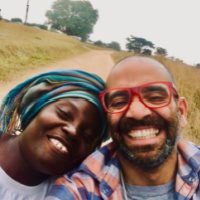
Ashish Gadnis is the Co-founder / CEO of BanQu, which was recently named to the TIME Magazine 2019 Innovations List and MB 2020 Leaders List. In February 2021 BanQu was named one of the top innovation for circular economy by World Economic Forum and Accenture. BanQu is the first ever blockchain-based (patented) Supply Chain & Economic Passport platform that enables transparency, traceability, equity and sustainability for farmers (especially women), workers, waste pickers/recyclers living in extreme poverty. BanQu has also become the leading platform for ensuring COVID-19 supplies are reaching the most vulnerable nations and communities in the MENA region. BanQu is being used in over 45 countries and almost 2 million last-mile-first-mile beneficiaries today. Prior to his current engagements, Mr. Gadnis was the founder and CEO of multiple technology startups, the last one of which was acquired by a $1.5 billion global consulting firm in 2012. Over the past 25 years Ashish has been recognized for his private / public sector contributions with awards such as – MIT Innovate for Refugees (Syrian refugees) award, Young Global Leader (World Economic Forum), Minority Business Leader (Twin Cities Business), 40 under 40 (Business Journal), Change-Makers Innovator Award (Coding Schools in Refugee Camps in East Africa) and Battery Ventures Innovation Award – Democratic Republic of Congo (for Asili: a mobile / cloud-based business focused on reducing infant child mortality, improving maternal health and increasing livelihood in conflict zones). Ashish has a Bachelor’s degree in Systems Engineering from Bombay University, MBA in Finance and Marketing from the Carlson School and Executive Education in Global Leadership and Public Policy from Harvard Kennedy School. Connect with Ashish on LinkedIn.
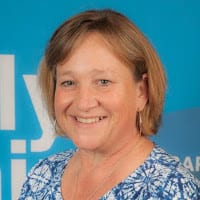
Jenny Froome is passionate about how supply chain management affects our lives on every level. Her original and now current profession is event management – the epitome of a well-honed supply chain. After many years working as COO of SAPICS – the professional body of supply chain management in South Africa she realized the importance of shining the light on the supply chains of Africa. Managing events such as the SAPICS annual conference, the People that Deliver Global Indaba, and the Africa Supply Chain Excellence Awards have truly allowed Jenny to combine her skills, knowledge, and community. Jenny’s lived all over the world and has settled in South Africa with her husband and many 4 legged friends while her sons are scattered around the world. Connect with Jenny on LinkedIn.
